|

HOME |
ABOUT | INDEX |
NEWS |
FACEBOOK |
CONTACT
ASIAN
China | Japan |
Korea | Pacific


African American|Black
Hispanic|Latinx
Arab|Muslim|Middle East
Indian|Hindu|Sikh
Jewish|Israeli
European|International

Coming Out as LGBTQ and Asian-American
Queer Emergence, Acceptance, and
Visibility in Asian Countries
Asian Pacific Americans (APAs) come from dozens of
different countries, making that population one of the
most diverse communities in America. Because of the
diverse cultural backgrounds, histories, and languages
of APAs, there is no universal coming out experience for
all LGBTQ APAs, but LGBTQ APAs still share some similar
challenges and experiences during the coming out
process.
In some circles, the APA (Asian Pacific
Americans) and API (Asian Pacific
Islanders) initialisms have been
expanded. A new collection of
letters has been assembled to refer to a
broader group of folks...
AANHPI is the new acronym for Asian
American and Native Hawaiian/Pacific
Islanders.
Family -
Coming out to family is an enormous challenge. Many fear
rejection, disappointing their parents or being seen as
sullying the family name. The subject of LGBTQ issues is
often treated with silence, which can feel like
rejection. Not unusual for a LGBTQ APAs to be out in
every aspect of life, except to family. When parents are
aware of a child's sexual orientation or gender
identity, that information is often hidden from family
friends.
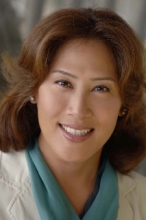 
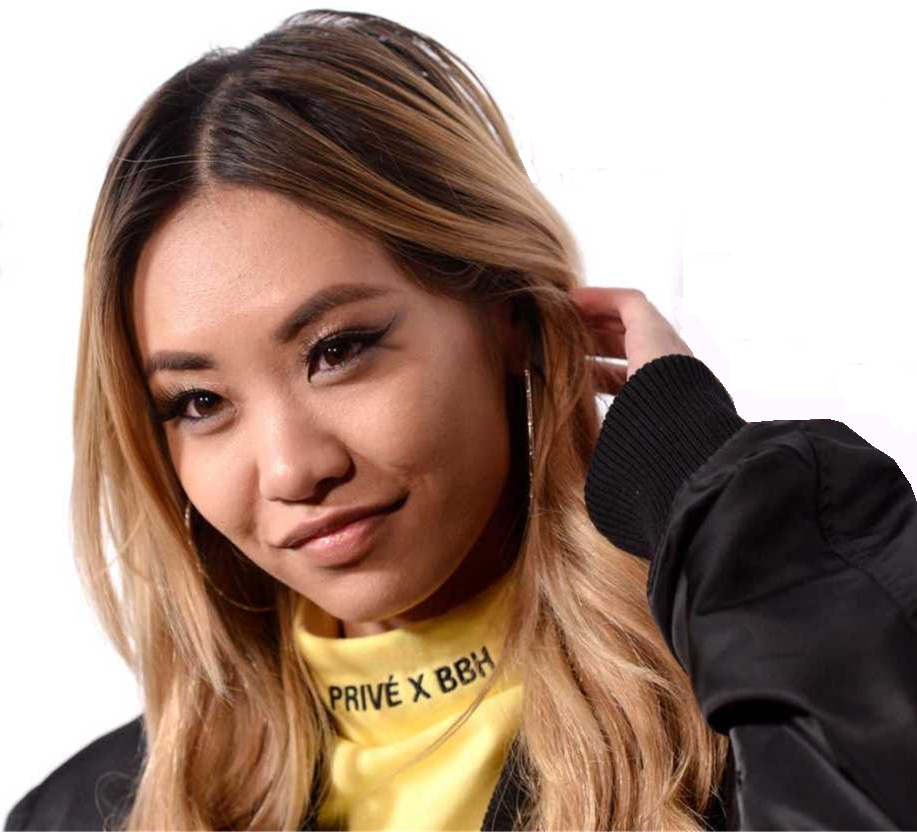 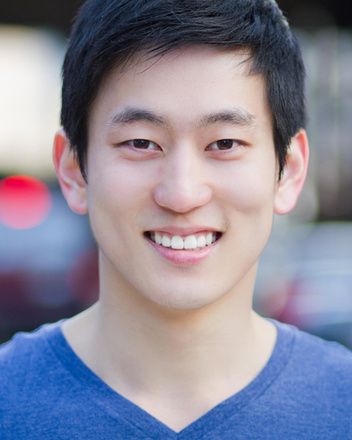
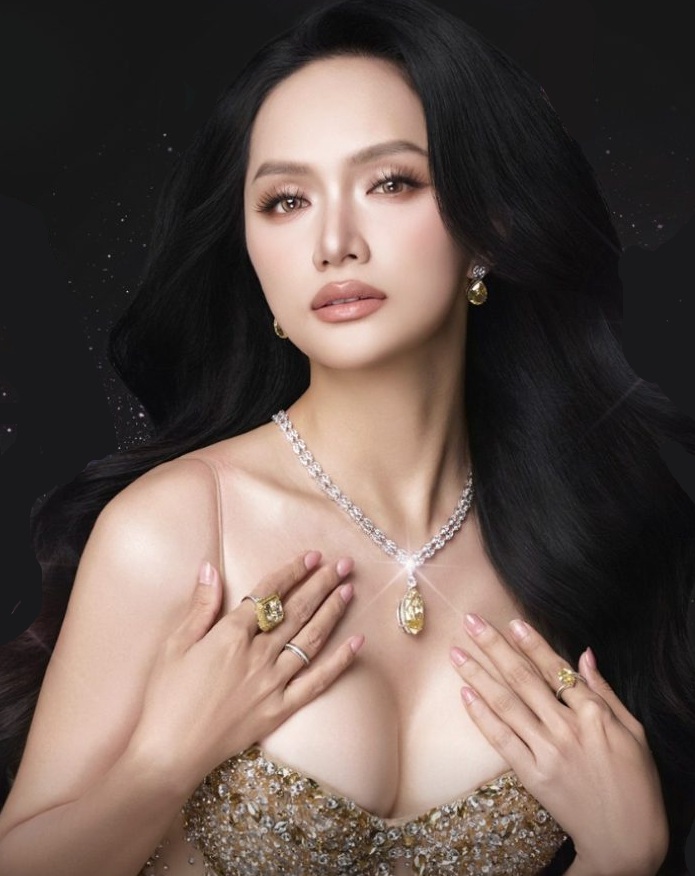
Hong Kong Judge Rules in Favor of Lesbian
Couple's Parental Recognition
Asian LGBTQ Groups Call for Recognition of Same-Sex
Couples
K-Pop Stars Who Are Openly LGBTQ
Kelly Marie Tran: Coming Out and Shaking Off the Shame
Trans and Wildly Popular “Oprah of China”
Suddenly Blackballed by Chinese Government
Thailand’s King Makes History: Signs Marriage Equality
Law
Queer Asian-American Movies You Should
Absolutely Watch
The Secret of Us: Sirilak Kwong and Kornnaphat
Sethratanapong
Thailand Becomes First Southeast Asian Nation to
Legalize Same-Sex Marriage
Religion -
There are traditional connections among family, culture,
and religion within the community. The
interconnectedness of culture and religion means that
any homophobia related to faith can have a devastating
effect. Experiences with religion vary greatly depending
on the religion practiced by a particular family,
individual, or region. Some religions such as Hinduism
are fairly accepting, while other like Catholicism and
Islam can be less accepting.
Society - Coming out
experiences are often intensified by a lack of
visibility, racism, and language barriers. There is
still a lack of visibility of APAs within LGBTQ groups,
publications, and media sources. There is a lack of
positive images of LGBTQ APAs in popular entertainment
and media. APAs can face racism within the LGBTQ
community, sometimes as overt discrimination and other
times as the lack representation.
[Source: Coming Out for Asian Pacific Americans, printed by
the Human Rights Campaign]
Thai Actors Both and Newyear Engaged After Thailand
Legalizes Marriage Equality
Pure Queer Joy in Bangkok as Thailand
Celebrates Pride
Info: Thai Girls Love
Daniel K Isaac: Rewriting the Script for
Queer Asian Visibility on Stage and Screen
Rule Your Own Pink by Becky Armstrong
RuPaul’s Drag Race Crowns First Taiwanese
American Queen
Hong Kong’s Top Court Rules in Favor of
Legal Recognition for Same-Sex Partnerships
Fans Cheer as Japanese Pop Star Shinjiro
Atae Comes Out on Stage
Queer Asian Project
Sam & Mon/Unconditionally/GAP The Series
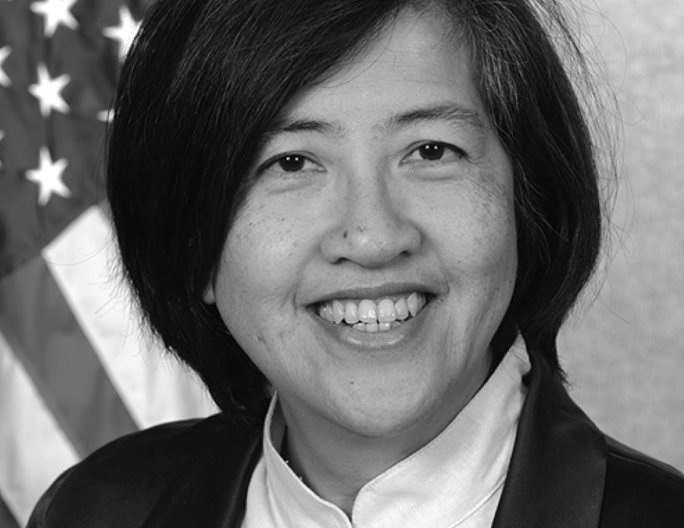 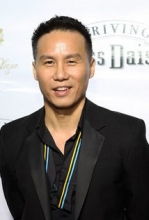
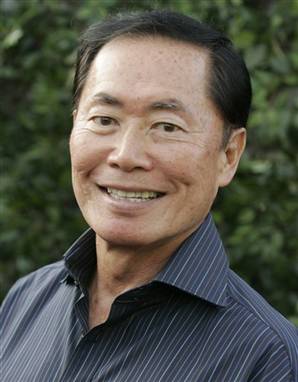

Key Milestones in
LGBTQ Acceptance
LGBTQ acceptance in Asia is currently defined by a
"patchwork" of rapid legal progress in some nations
contrasted against deep-seated social conservatism and
recent legislative regressions in others. In recent
years, several countries have emerged as regional
leaders through landmark legal shifts. And, while there
are some remaining obstacles, public sentiment is
shifting, primarily driven by younger, urban
populations.
--Marriage Equality: Taiwan became the first in Asia to
legalize same-sex marriage in 2019. It was followed by
Nepal in 2023 and Thailand in 2024, with Thai marriages
officially commencing in early 2025.
--Decriminalization: Singapore repealed its colonial-era
ban on gay sex in late 2022, though it simultaneously
amended its constitution to protect the traditional
definition of marriage. India's Supreme Court similarly
decriminalized homosexuality in 2018.
--Medical De-pathologization: Vietnam's Ministry of
Health officially declared in 2022 that homosexuality is
"not an illness," instructing healthcare providers to
end discriminatory "treatments".

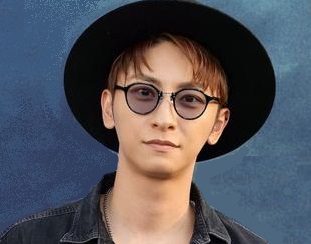
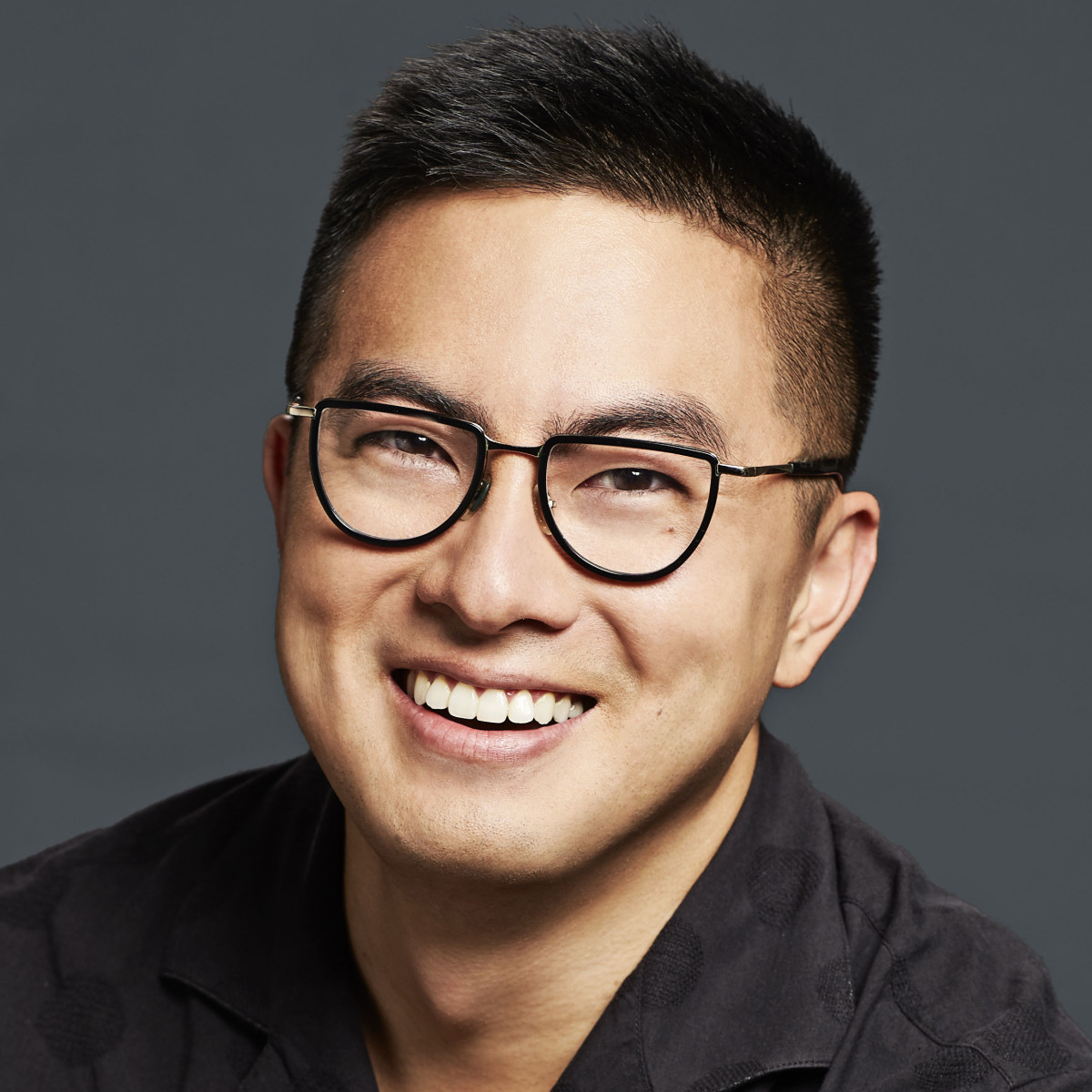
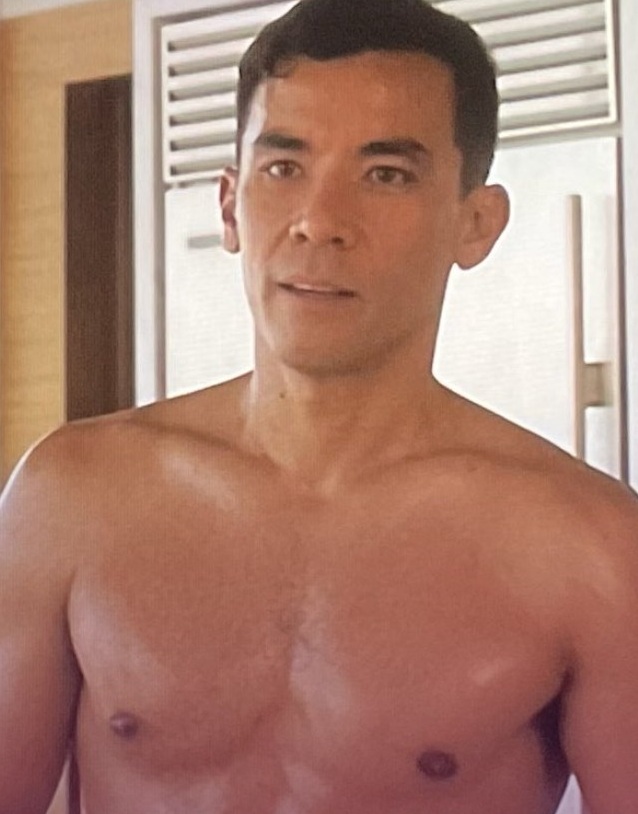
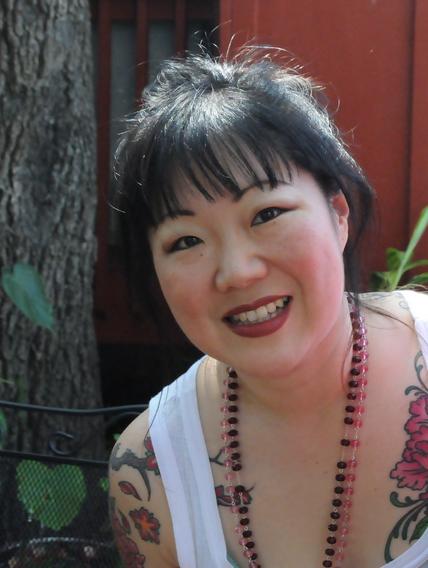
More Than Half of Chinese Citizens Support LGBTQ Rights,
Poll Suggests
Japan Grants More Legal Protections to
Same-Sex Couples
Thailand Becomes First Southeast Asian Nation to
Legalize Same-Sex Marriage
Info: Thai Girls Love
Vietnamese Soccer Star Makes History by
Marrying Her Girlfriend
Daniel K Isaac: Rewriting the Script for
Queer Asian Visibility on Stage and Screen
Japan Court Rules That Ban on Same-Sex
Marriage is Unconstitutional
Hundreds of LGBTQ Couples
Get Married in Taiwan
Yoon Bok and Jeong Hyang:
Painter of the Wind
Hong Kong Court Rules in Favor of Gay Couple
GLAAD: LGBTQ Asian Pacific Islander Resource Kit
Social Acceptance and Generational Gaps
--Generational Divide: In Japan and South Korea, over
70–80% of young adults support LGBTQ acceptance, while
support among those over 50 remains significantly lower
(often below 25%).
--Visibility: Pride events in major hubs like Taipei,
Tokyo, and Bangkok now attract tens of thousands of
participants annually, signaling a rise in public
visibility and grassroots activism.
--The "Invisible" Tolerance: In many Asian cultures,
there is a historical tradition of "tacit acceptance" or
"tolerance through invisibility". Many individuals may
live queer lives as long as they fulfill traditional
social duties, such as heterosexual marriage and
procreation.


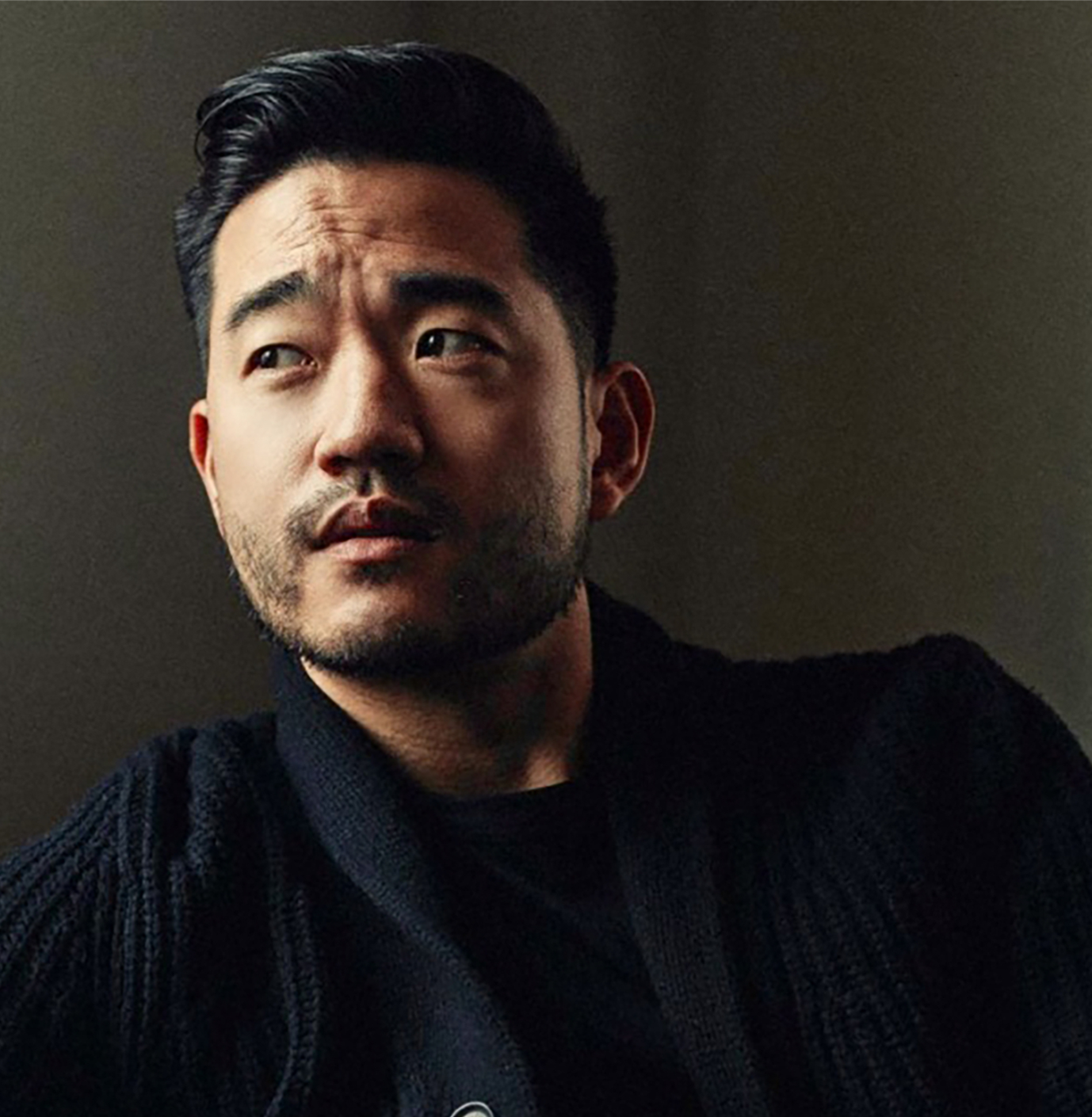
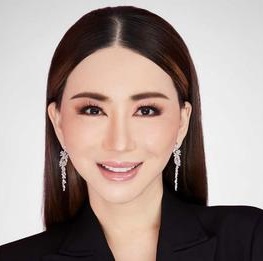
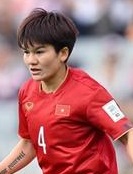
Sports Illustrated Swimsuit Model Lauren Chan Marries
Hayley Kosan
Rise of Conrad Ricamora: Asian Gay Actor
Changing the Game
History-Making Trans Beauty Queen Will Compete at Miss
Universe 2025
Hong Kong Judge Rules in Favor of Lesbian Couple's
Parental Recognition in Landmark Case
Trans and Wildly Popular “Oprah of China”
Suddenly Blackballed by Chinese Government
Thai Actors Both and Newyear Engaged After Thailand
Legalizes Marriage Equality
Pure Queer Joy in Bangkok as Thailand
Celebrates Pride
K-Pop Idols Who Have Shown Support for the LGBTQ
Community
RuPaul’s Drag Race Crowns First Taiwanese
American Queen
Miss Universe Pageant Sold to Thai Trans
Businesswoman
History-Making Trans Beauty Queen Will
Compete at Miss Universe 2025
Miss Vietnam: Nguyen Huong Giang
Singer and reality TV star Nguyen Huong
Giang will compete as Miss Vietnam at
the 2025 Miss Universe beauty pageant,
the first time a transgender woman has
represented Vietnam in the contest. The
pageant is slated to be held in Thailand
in November 2025.
“Nguyen is a living testament to the
power of determination and talent,” the
announcement said. “In every role, she
shines with a strong inner strength,
creativity and pride, true to the image
of a modern and strong Vietnamese
woman.”
Nguyen rose to fame through Vietnamese
reality competitions in the 2010s,
breaking through on Vietnam Idol in 2012
as the show’s first trans contestant and
placing in the final four. She went on
to release her first music album Mercury
in 2013, and won the third season of The
Amazing Race Vietnam the following year.
Nguyen then entered the beauty circuit
in 2018, winning the Miss International
Queen pageant in Thailand, and in 2024
served as a producer of Miss Universe
Vietnam.

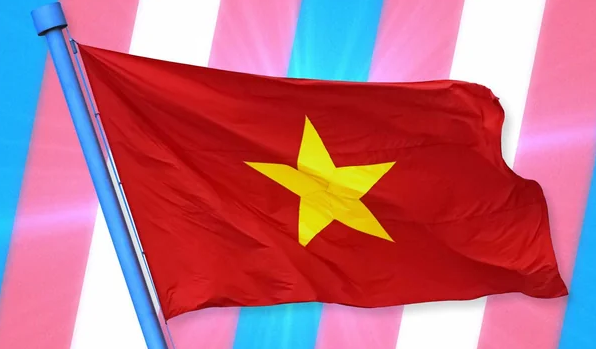
“This is not just a story about gender.
It is a story about people, about faith.
Believe that with enough effort, one
day, you can all change your own lives,”
Ngyuen said. “Your starting point does
not define your limits.”
The Miss Universe pageant lifted its ban
on trans women in 2012. Since then,
three trans women have vied to be named
Miss Universe: Spain’s Ángela Ponce
became the first in 2018, followed by
Rikkie Kollé and Marina Machete in 2023,
representing the Netherlands and
Portugal respectively. No trans woman
has yet won the contest, though Machete
placed in the top 20.
Trans Thai billionaire Anne Jakkaphong
Jakrajutatip bought the Miss Universe
organization in 2022, saying that she
planned to “evolve the brand for the
next generation” while staying true to
its legacy. “Trans women can do it and
we’re going to transform the world by
having everyone look at us. We can make
it successful,” Jakrajutatip said. “This
is the purpose of my life and I will
pursue it for the rest of my life.”
[Source: Samantha Riedel, Them Magazine,
September 2025]
More Than Half of Chinese Citizens
Support LGBTQ Rights, Poll Suggests
South Korea Officially
Recognizes Same-Sex Couples in National
Census
Japan Just Took a Huge
Step Towards Marriage Equality
Sports Illustrated Swimsuit Model Lauren
Chan Marries Hayley Kosan
History-Making Trans Beauty Queen Will
Compete at Miss Universe 2025
Rise of Conrad Ricamora:
Asian Gay Actor Changing the Game
Hong Kong Judge Rules in Favor of Lesbian Couple's
Parental Recognition in Landmark Case
Trans and Wildly Popular “Oprah of China”
Suddenly Blackballed by Chinese Government
Thai Actors Both and Newyear Engaged After Thailand
Legalizes Marriage Equality
Pure Queer Joy in Bangkok as Thailand
Celebrates Pride
K-Pop Idols Who Have Shown Support for the LGBTQ
Community
RuPaul’s Drag Race Crowns First Taiwanese
American Queen
Japan Expands Protections for Same-Sex
Couples
The Japanese government has
granted more protections to same-sex
couples...
According to The Japan Times, the
government have decided to recognize
same-sex couples as being in “de facto
marriages” under nine more laws,
including the Disaster Condolence Grant
law.
The recent development comes months
after the government determined that 24
laws – including the Domestic Violence
Prevention Act, Land and House Lease
Act, Child Abuse Prevention Act, and
Public Housing Act – would apply to
same-sex couples.
Over the last few years, the local LGBTQ
community in Japan have been embroiled
in a battle for marriage equality.
Currently, the country’s constitution
defines marriage as “mutual consent
between both sexes” and doesn’t
recognize marriage equality.
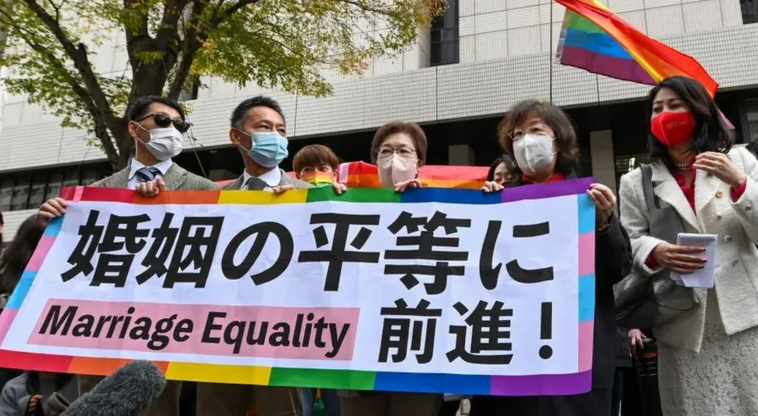
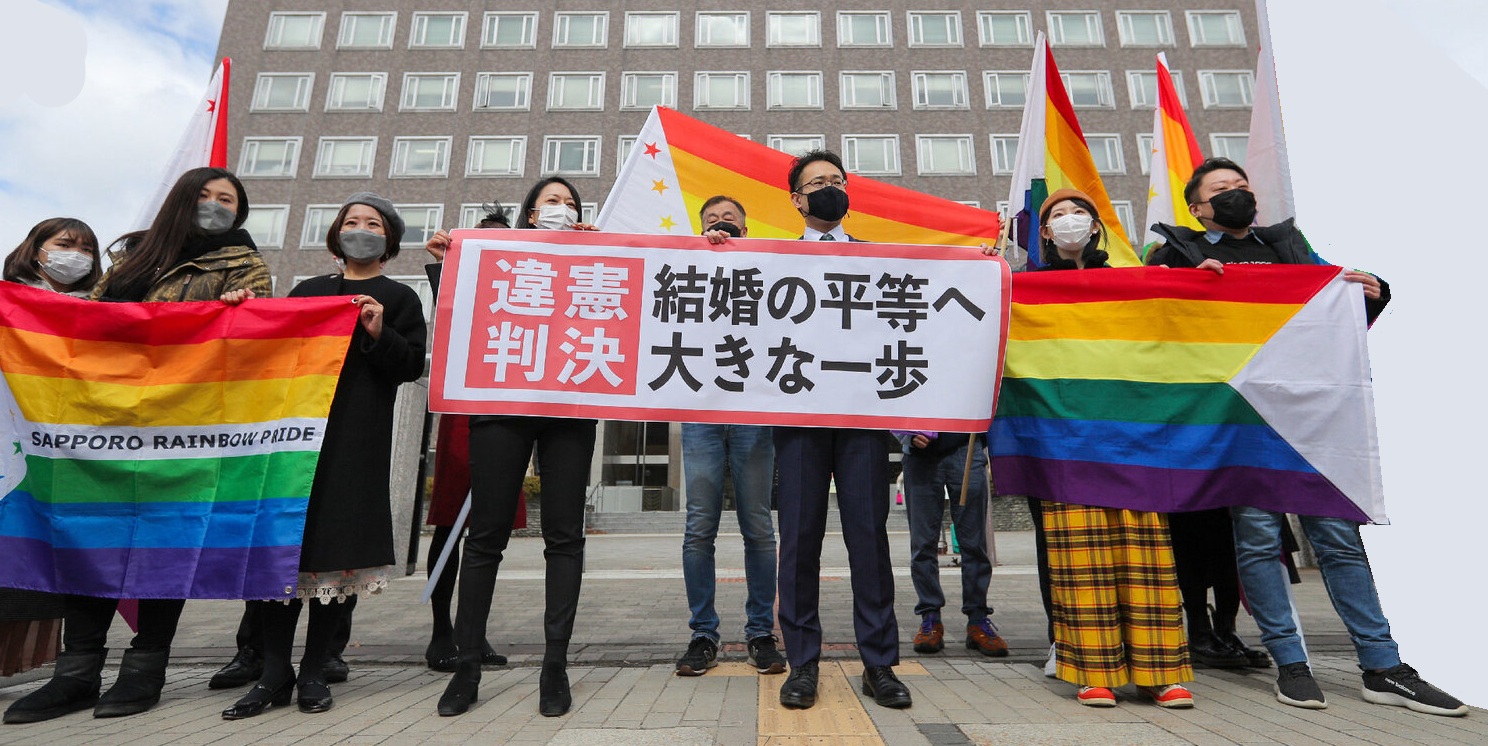
Being Gay in Japan
NBC News: Asian American LGBTQ Support
Groups
Kang Guk and Tae Joo: Take
Me Apart
South Korean Capital Celebrates 1st Pride Parade in 3
Years
Majority of Young Hongkongers Support LGBTQ Equality,
but Discrimination Still Common
China Opens First Clinic for Transgender Youth
Erica Sullivan: Witty, Charming, Asian, and Gay
Kumi Yokoyuma: Japanese Soccer Player Comes Out as Trans
In March 2021, the Sapporo District
Court ruled that the government’s
refusal to recognize same-sex marriage
was unconstitutional under Article 14 of
the Japanese constitution, which bans
discrimination based on “race, creed,
sex, social status or family origin.”
While the historic ruling offered a sign
of hope for LGBTQ equality, the
community was hit with a major setback
the following year.
In June 2022, a district court in Osaka
ruled against three LGBTQ couples and
their call for same-sex marriage. “From
the perspective of individual dignity,
it can be said that it is necessary to
realize the benefits of same-sex couples
being publicly recognized through
official recognition,” the court said.
“Public debate on what kind of system is
appropriate for this has not been
thoroughly carried out.” A few
months later, a Tokyo court upheld the
aforementioned ruling.
However, despite the court doubling down
on its stance, the presiding judge also
stated that the lack of a legal system
and protections for same-sex couples
infringes on their human rights.
While the marriage equality movement in
Japan has suffered a handful of
setbacks, it has also seen a few notable
wins over the last three years.
In May 2023, the Japanese government
faced renewed pressure when the Nagoya
District Court ruled the country’s
same-sex marriage ban as
unconstitutional. Then, in 2024, the
Tokyo High Court and the Sapporo High
Court issued separate rulings marking
the ban as unconstitutional. Lastly,
Japan’s Osaka High Court and Nagoya High
Court delivered similar decisions in
March 2025.
[Source: Jordan Robledo, Gay Times,
October 2025]
South Korea Officially
Recognizes Same-Sex Couples in National
Census
Sports Illustrated Swimsuit Model Lauren
Chan Marries Hayley Kosan
Miss Universe Pageant Sold to Thai Trans
Businesswoman
South Korean Capital Celebrates 1st Pride Parade in 3
Years
Rise of Conrad Ricamora: Asian Gay Actor
Changing the Game
Majority of Young Hongkongers Support LGBTQ Equality,
but Discrimination Still Common
China Opens First Clinic for Transgender Youth
Erica Sullivan: Witty, Charming, Asian, and Gay
Kumi Yokoyuma: Japanese Soccer Player Comes Out as Trans
Taiwan's Big LGBTQ Pride Parade
Taiwan's Pride Parade celebrated
its 21st year and drew a record-breaking
crowd of over 150,000 attendees
In October 2024, Taipei became a
dazzling showcase of love and unity as a
parade of colorful floats and
eye-catching costumes filled the
streets. Participants, hailing from
places like Vietnam, Hong Kong and
Japan, marched through the heart of
Taipei, waving rainbow flags.


“Gender equality is very important,
especially in Asia where there are still
many conservative countries,” an
attendee said. “Taiwan is relatively
democratic and free, so everyone comes
to Taiwan to participate in the parade
for gender equality and speak up for
equal rights.” The first Pride
Parade in Taiwan took place in 2003 and
had only 700 participants, many of them
wearing face coverings to avoid stigma.
Taiwan was the first Asian country to
legalize same-sex marriage in 2019.
180,000 People Take Part in Taiwan Pride
Parade
Thousands Gather for Colorful
Celebration at Taiwan Pride Parade
Taiwan Pride: Inside Asia's Biggest Ever
LGBTQ Parade
Taiwan Pride 2024: Record-Breaking
Celebration of Love and Equality in
Taipei
Thousands March in Downtown Taipei for
Inclusion at Taiwan Pride
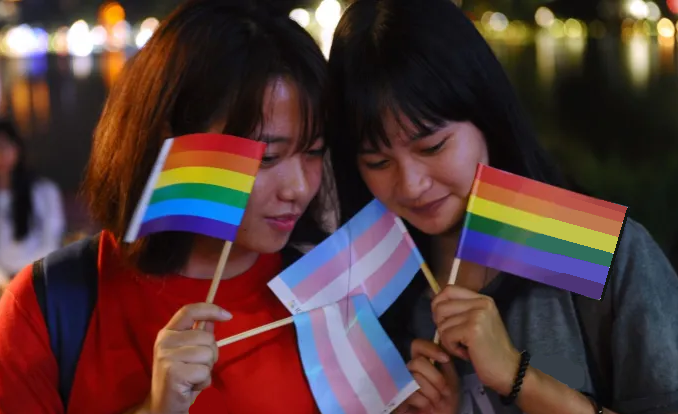
Thailand Becomes First Southeast Asian Nation to
Legalize Same-Sex Marriage
Thailand’s king makes history... signs marriage
equality law...
The king of Thailand signed a new law recognizing
marriage equality, the government announced in its
official Royal Gazette in September 2024. With the royal
ascent of King Maha Vajiralongkorn, Thailand became
Southeast Asia’s first country and only the third
country in Asia to recognize marriage equality. The new
law will take effect on January 22, 2025.
“To all the love,” Prime Minister Paetongtarn Shinawatra
said. “Congratulations on everyone’s love.” The new law
amends the country’s civil code and ensures same-sex
married couples receive full legal, medical, and
financial rights, as well as full inheritance and
adoption rights. The new law also amends the civil code
to use gender-neutral rather than binary language.

Hong Kong Judge Rules in Favor of Lesbian
Couple's Parental Recognition
Asian LGBTQ Groups Call for Recognition of Same-Sex
Couples
Kelly Marie Tran: Coming Out and Shaking Off the Shame
Thailand’s King Makes History: Signs Marriage Equality
Law
Thailand Becomes First Southeast Asian Nation to
Legalize Same-Sex Marriage
Huff Post: Intimate Look at Queer Life in Japan
Queer Asian-American Movies You Should
Absolutely Watch
The law was passed by the country’s senate in June 2024
by a vote of 130 to 4 and was the signature legislation
of former Prime Minister Srettha Thavisin, a vocal
supporter of the LGBTQ community in Thailand.
“Another important step for Thai society, the marriage
equality law has been passed,” Thavisin posted, adding
“Gender diversity will finally be fully accepted.”
Despite its strongly conservative religious and cultural
heritage, Thailand has been a welcoming tourist
destination for the LGBTQ community. “The law is a
monumental step towards equal rights in Thailand,” LGBTQ
rights advocate Waaddao Chumaporn said. Chumaporn said
she is organizing a mass wedding in the country’s
capital Bangkok to celebrate the historic event. She
said she hopes to attract over a thousand same-sex
couples to tie the knot on January 22 of next year.
Thailand joins Nepal and Taiwan as the only countries in
Asia recognizing marriage equality when the new law
takes effect next year. Taiwan legalized marriage
equality in 2019 and Nepal followed in 2023.
[Source: Donald Padgett, Advocate Magazine, Sept 2024]
National Queer
Asian Pacific Islander Alliance
Video Story: Coming Out to My Asian Parents
Visibility
Project: Asian Pride
Video List: Famous Asian American LGBTQ
People
Thai Trans Celebrity and Businesswoman Jakapong
Jakrajutatip
Advocate: LGBTQ People Must Condemn Violence Against
Asian Americans
CNN: COVID-19 Has Inflamed Racism Against Asian
Americans
Advocate: COVID 19 Doesn't Discriminate and Neither
Should We
The
Secret of Us: Sirilak Kwong and Kornnaphat
Sethratanapong
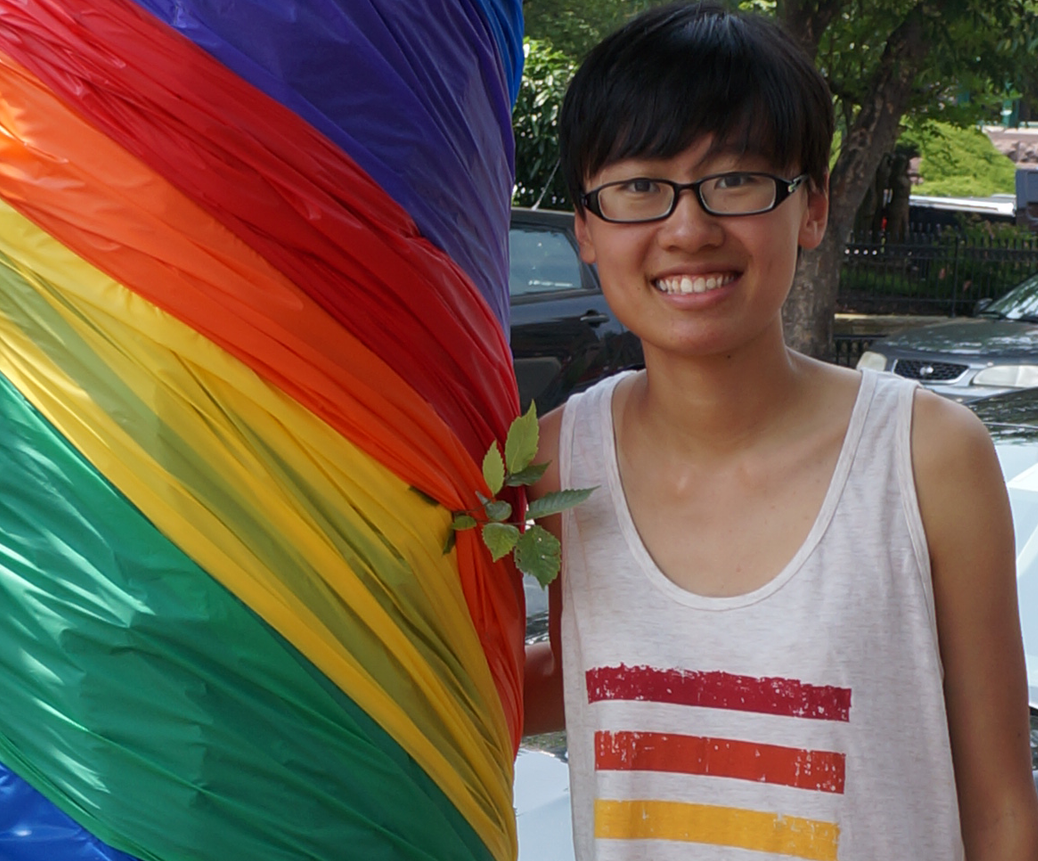
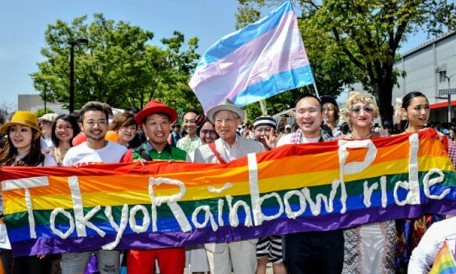
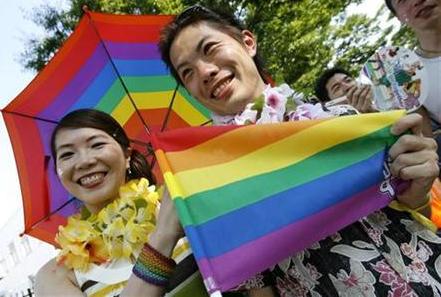
LGBTQ Issues in Asia
LGBTQ issues in Asian countries,
including Japan, Korea, and
Thailand, have seen significant
shifts in recent years, albeit
at varying paces and degrees.
While some progress has been
made in terms of legal
recognition and social
acceptance, challenges persist,
highlighting the complex
interplay between culture,
tradition, and modernity in
these societies.
In Japan, there has been a
growing visibility of LGBTQ
individuals in recent years,
with Tokyo Pride Parade
attracting tens of thousands of
participants annually. Legal
recognition has also improved,
notably with the introduction of
partnership certificates in some
municipalities, although
same-sex marriage remains
unrecognized at the national
level. However, social stigma
and discrimination persist,
particularly in more
conservative rural areas,
reflecting deeply ingrained
cultural attitudes.
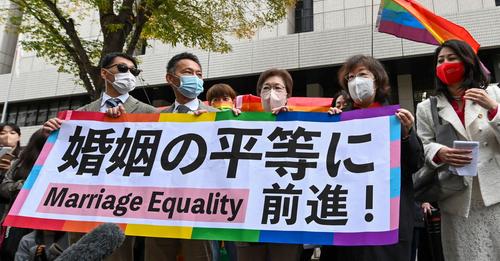
More Than Half of Chinese Citizens
Support LGBTQ Rights, Poll Suggests
Rise of Conrad Ricamora:
Asian Gay Actor Changing the Game
Hong Kong Judge Rules in Favor of
Lesbian Couple's Parental Recognition in
Landmark Case
GLSEN: LGBTQ Asians Who Have Made an Impact
United Nations: Being LGBTQ in Asia
Voices of Queer Asian
Youth
HRC: Being Asian Pacific Islander and LGBTQ
Video: Queer Asians Coming Out to
Immigrant Parents
Out China: YouTube Channel
Queer Asian-American
Movies You Should Absolutely Watch
K-Pop Stars Who Are
Openly LGBTQ
Japan’s Opposition Party Submits Bill to Legalize
Same-Sex Marriage
South Korean Court Recognizes Same-Sex Couple Rights for
First Time
Japan's Lack Of Protections For LGBTQ Couples Is
Unconstitutional, Tokyo Court Rules
South Korea's LGBTQ Community Confronts Crushing
Headwinds in Fight for Equality
In South Korea, despite a vibrant LGBTQ
community and increasing visibility in
media and entertainment, societal
acceptance lags behind. Same-sex
marriage is not legally recognized, and
discrimination in employment and
education is still prevalent. However,
there have been promising signs of
change, with public attitudes slowly
shifting, especially among younger
generations who are more open-minded.
Thailand stands out as a relatively
progressive country in the region
regarding LGBTQ rights. It has a
thriving LGBTQ scene, particularly in
Bangkok, and is known for its vibrant
transgender culture. Same-sex
relationships are not criminalized, and
steps have been taken towards legal
recognition, such as the Gender Equality
Act of 2015. However, discrimination and
social stigma persist, particularly in
rural areas, highlighting the
urban-rural divide in attitudes towards
LGBTQ issues.
Overall, while there have been positive
developments in LGBTQ rights in Asian
countries like Japan, Korea, and
Thailand, challenges remain. Legal
recognition and social acceptance vary
widely across these nations, reflecting
the diverse cultural, religious, and
political landscapes. Continued
advocacy, education, and dialogue are
crucial for further progress towards
equality and inclusion for LGBTQ
individuals in Asia.
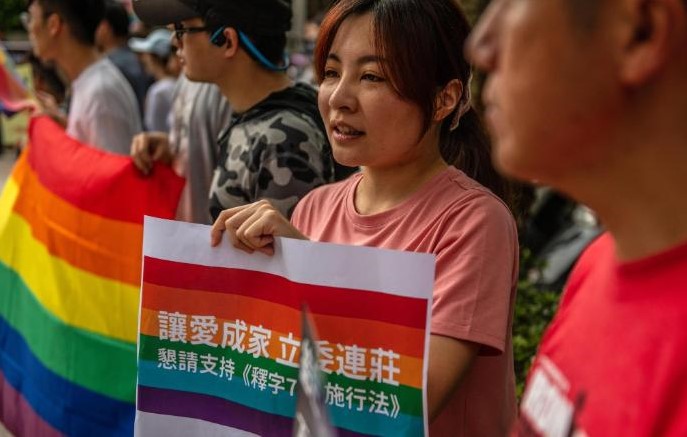
GLAAD: Honoring LGBTQ Asian Americans
Sports Illustrated Swimsuit Model Lauren Chan Marries
Hayley Kosan
Modern Family: Celebrate Your Heritage
Trans and Wildly Popular “Oprah of China”
Suddenly Blackballed by Chinese Government
Thailand Becomes First Southeast Asian Nation to
Legalize Same-Sex Marriage
Korean
Drama: Better With You
Chinese Ad Features Gay Couple
Pure Queer Joy in Bangkok
as Thailand Celebrates Pride
Video: Talk with Chinese Gay Couple
How Do Lesbians Date in
China?
NASPA: Challenges for LGBTQ Asian American Students
Gardens of the Wind
Sam & Mon/Unconditionally/GAP The Series
Thailand's First Trans Woman to Run for Prime Minister
Mark Takano: Fighting Back Against Anti-Asian Racism
Ride or Die: Japanese
Lesbian Thriller is not Stereotypical
Asian LGBTQ Celebrities
Erica Sullivan (Japanese) - Olympic Athlete
Jake Choi (Korean) - Actor, Athlete
BD Wong (Chinese) - Actor
Margaret Cho (Korean) - Comedian
George Takei (Japanese) - Actor
Hayley Kiyoko (Japanese) - Musician
Jay Kuo - (Chinese) Chair of Human Rights Campaign Board
of Directors
Kelly Marie Tran (Vietnamese) - Actor (Wedding Banquet,
Star Wars)
Huang Jie (Taiwanese) -
Politician
Sarocha Chankimha (Thai) - Actor
Rebecca Patricia Armstrong
(Thai) - Actor
Tran Thi Thu (Vietnamese) -
Soccer Player
Lauren Chan (Cghinese) - Model,
Entrepeneur
Chantale Wong - US Ambassador, Director of Asian Dev
Bank
Jin Xing (Chinese) - Dancer,
Talk Show Host (Oprah of China)
Justin Huertas (Filipino) - Playwright
Schuyler
Bailar (Korean) - Trans athlete and author
Nguyen
Huong Giang (Vietnamese) - Trasnsgender Miss Universe
Representative
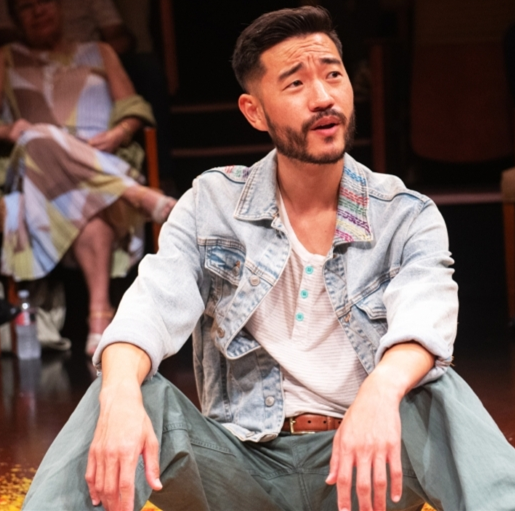
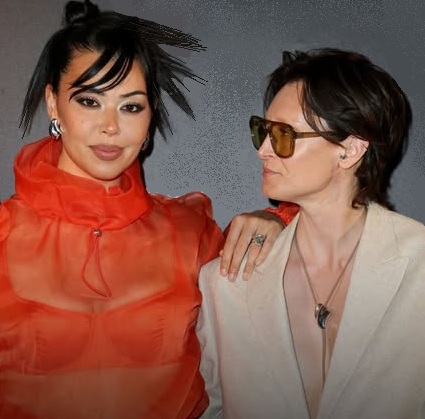


K-Pop Stars Who Are Openly LGBTQ
Jan Di and Jae Kyung
Hong Kong Judge Rules in Favor of Lesbian Couple's
Parental Recognition in Landmark Case
Queer Asian-American Movies You Should
Absolutely Watch
Daniel K Isaac: Rewriting the Script for
Queer Asian Visibility on Stage and Screen
RuPaul’s Drag Race Crowns First Taiwanese
American Queen
Japanese Pop Star Shinjiro Atae Comes Out As Gay
Japanese
Court Rules Same-Sex Marriage Ban is
Unconstitutional
Our
Families: LGBTQ Asian and Pacific
Islander Stories
Video List: Famous Asian American LGBTQ People
The Secret of Us: Sirilak Kwong and Kornnaphat
Sethratanapong

Aubrey Anderson-Emmons (Korean) - Actor, Lily on Modern
Family
Sherry Cola (Chinese) - Comedian, Actor
Sam Park (Korean) - Georgia Politician, HIV Activist
Bowen Yang (Chinese) - Comedian, SNL Cast Member
Shinjiro Atae (Japanese) -
Musician, Pop Star
Mark Takano
(Japanese) - Politician
Kim Coco (Japanese) - Activist
Helen Zia (Chinese) - Journalist, Advocate
Dan Choi (Korean) - Soldier, Advocate
Marshall Bang (Korean) - Musician, K-Pop
Joel Kim Booster (Korean) - Actor
Jakapong Jakrajutatip (Thai) - Business Executive
Glenn Magpantay (Filipino) - US Commissioner on Civil
Rights
Michelle Dee (Filipino) - Miss Universe Philippines
Park Chohyeon (Korean) -
Musician, K-Pop
Daniel K Isaac (Korean) - Actor
Dhruv (Singapore) - Musician
Newyear Kitiwhut
(Thai) - Actor
Both Nuttapong
(Thai) - Actor
Kit Yan (Chinese) - Poet,
Screenwriter
Qatrisha Zairyah (Singapore) -
First Trans Woman in Miss
Universe Singapore Finals

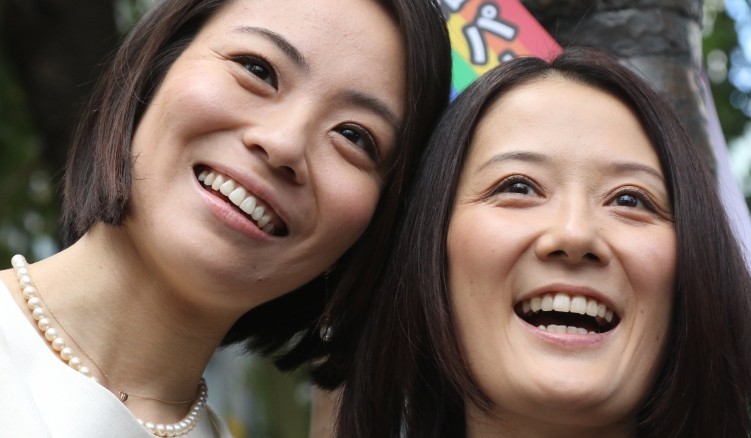

Korean Lesbian Movies and Series
Greatest Asian Lesbian Movies You Must See
Kelly Marie Tran: Coming Out and
Shaking Off the Shame
CNN: The Problem with Being Gay in South Korea
Letter to Queer Asian Americans
Best Korean Lesbian Movies
Thai Actors Both and Newyear
Engaged After Thailand Legalizes
Marriage Equality
K-Pop Idols Who Have Shown
Support for the LGBTQ Community
Best Korean Lesbian Movies
Lauren Chan: First Out Lesbian
on the Cover of Sports Illustrated Swimsuit Issue
First Out Asian Plus-Size Lesbian on the Cover of Sports Illustrated Swimsuit Issue...
Model Lauren Chan is being celebrated as the first out lesbian to appear solo on the cover of the Sports Illustrated annual swimsuit edition. She is also the first such cover star to be Asian and plus-size.
The model appears on the front of the magazine due out in May 2025. She is one of four cover stars, the others being actor Salma Hayek, gymnast Jordan Chiles and influencer Livvy Dunne.
  
Model Lauren Chan is the First Out Lesbian to Appear Solo on a Sports Illustrated Swimsuit Cover
Lauren Chan Makes History as the First Out Lesbian on the Cover of Sports Illustrated Swimsuit Issue
Sports Illustrated Swimsuit Issue Welcomes its First Out Lesbian Cover Star
Sports Illustrated Swimsuit Model Lauren Chan Marries Hayley Kosan
Chan made her Sports Illustrated debut in 2023, becoming the first queer plus-size model to appear in the magazine.
Speaking after her new cover-shot was unveiled, she said: “My whole career has been based on representation and inclusion, first for folks of size with my time as a plus-size model and fashion editor and plus-size brand founder,” a reference to her clothing brand, Henning.
“Then, once I started my journey with swimsuit, it has become a lot about LGBTQ folks and the Asian American and Pacific Islander community, because I believe I’m also the first Chinese person on the cover of swimsuit.
“So, although my career has taken different forms, the same North Star has been followed, and that is to represent people like me who have felt marginalized and left out, to have them feel not just included but celebrated.”
 
Chan appears on the cover in a green bikini by the plus-size inclusive brand, Cult Gaia. Inside, she is seen wearing mostly white swimsuits, which she said had a “bridal feel” – a nod to her engagement to film director Hayley Kosan.
Chan came out publicly as a lesbian in 2023, after divorcing her husband. At the time, she wrote in she said: “Because I identified as straight until recently, most people I’ve privately come out to have been surprised at this change in my sexuality. First and foremost: me.”
Hong Kong Judge Rules in Favor of Lesbian Couple's Parental Recognition
Asian LGBTQ Groups Call for Recognition of Same-Sex Couples
Thailand’s King Makes History: Signs Marriage Equality
Law
Best Asian Gay Movies of All Time
Top Asian Lesbian Movies
Modern Family: Celebrate Your
Heritage
LGBTQ Millennials: Acceptance and Tolerance in Singapore
Gay Guide to Bangkok for
First Timers
Same Sex Asian Couple: Wedding Party
Best Japanese
Lesbian Movies
Soo Yeon and Eun Bin
Crazy Queer Asians: Sex
Positivity
Voices of Queer Asian
Youth
Korean Love Story: Hug Me
Being Gay in Deeply Conservative China
List: LGBTQ Americans of Asian Decent
Japanese Love Story: Make Me Complete
Infatuation: Korean Music Video
Cello and a Kiss
Girls Love: Southeast
Asian Entertainment
Who are
Freen and Becky?
We've all heard of
K-Pop, the moniker for the Korean popular entertainment
scene. Well, have you heard of T-Pop? It is
the label for the Thai popular entertainment scene.
Meet Freen Sarocha
and Becky Armstrong (Shipped as FreenBecky). Freen and
Becky, also known as Sarocha Chankimha (Freen) and
Rebecca Patricia Armstrong (Becky), are two talented
lesbian Thai
actresses, singers, and models who have achieved considerable popularity for their roles in
the GL (Girls Love) series “GAP: The Series.” They have
won the hearts of fans worldwide with their exceptional
performances and on-screen (and off-screen) chemistry.


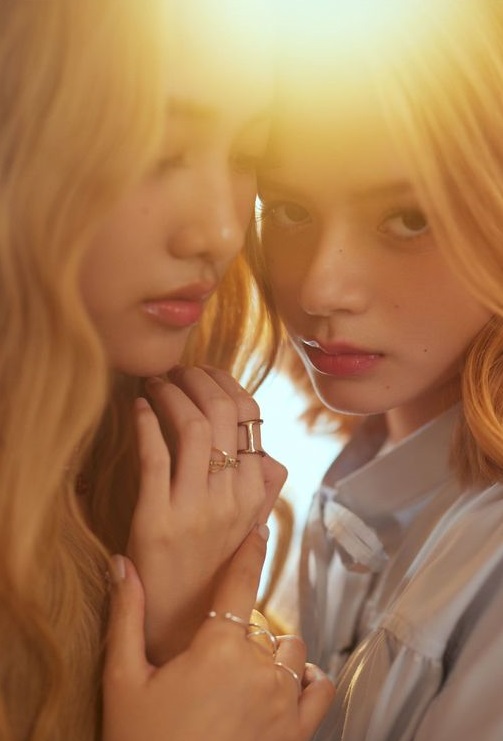
FreenBecky Promo
Video1
Freen and Becky Reacting to The Loyal Pin
Rule Your Own Pink by Becky Armstrong
Interview with Freen and Becky
No
More Blues by FreenBecky
Sam & Mon: Romantic Scenes
Give Me Your
Forever (in English) by FreenBecky
Feenbecky: By My Side and In My Heart
Freen and Becky Singing
FreenBecky Reel: Love Scenes
Becky Armstrong: Reading an Inspiring
Quote
Info: Thai Girls Love
Freen and Becky have
been involved in various film and music projects and have
received awards and recognition for their contributions
to the entertainment industry. Their successful careers
and engaging personalities have made them beloved figures
in the Thailand entertainment scene.
“GAP: The Series” debuted in late 2022 and continued into
early 2023, becoming a significant milestone in the GL
genre within the T-Pop or Thai entertainment industry. It received
praise for its depiction of lesbians as the main couple
and has been well-received by both domestic and
international audiences.
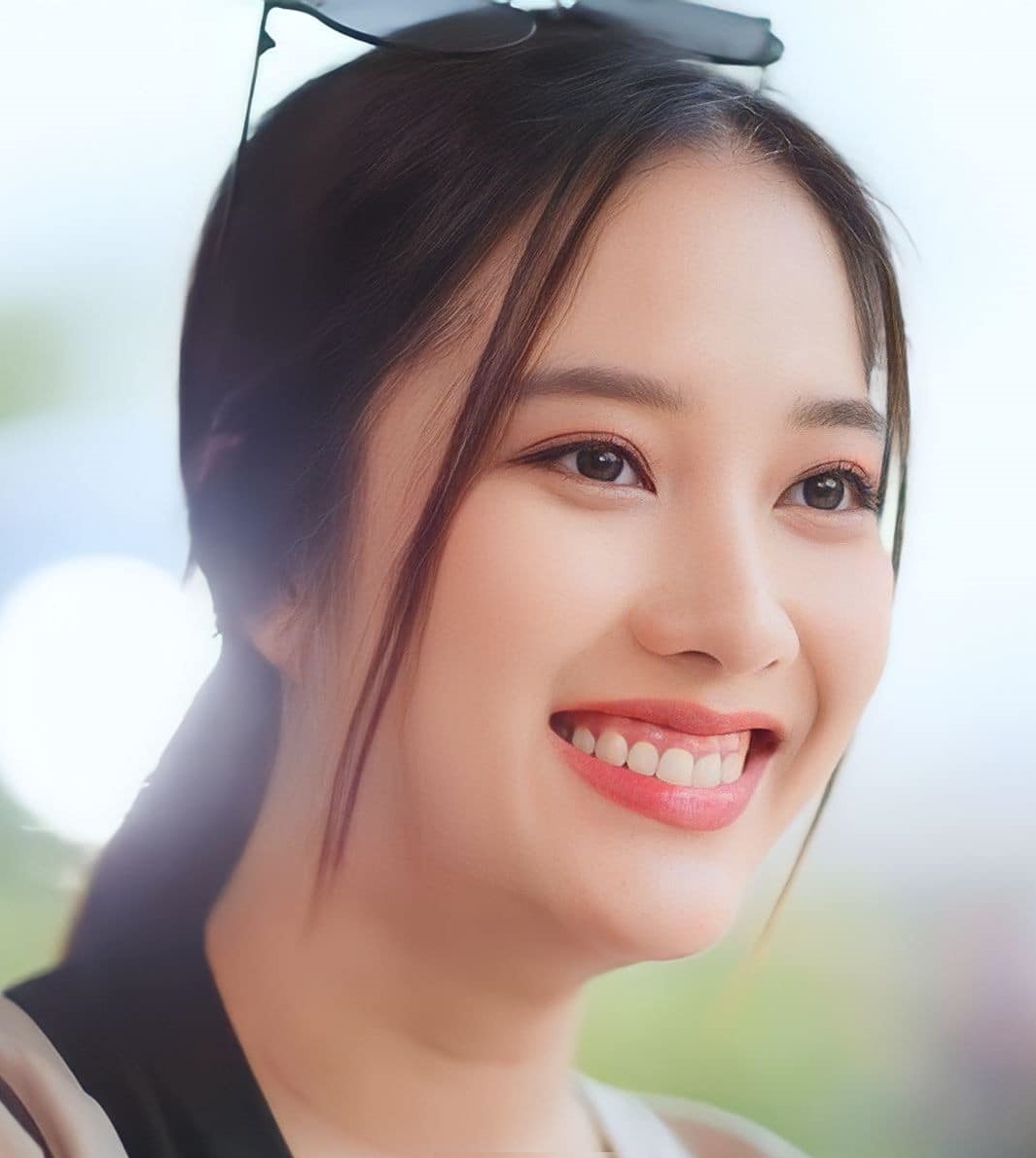


Freen and Becky Made Girl Love Possible
Sam
& Mon: All Too Well
Freen & Becky Flirting Moments
Marry Me by FreenBecky
FreenBecky: Sam and Mon Montage
Sam
and Mon: Kiss Me Slowly
Becky Has Something to Tell You!
GAP
The Series: Official Trailer
Freen and Becky On-Screen
Sam
and Mon: Unconditionally
FreenBecky: Photo Shoot
Info: Thai Girls Love
Sarocha Chankimha, also known as “Freen,” is a
professional Thai actress and model. She gained
prominence for her role as Samanan Anantrakul (Sam) in
the popular Thai drama series GAP (2022). Freen was born
in 1998, in Thailand. From a young age, Freen had a
passion for the corporate sector and desired to pursue a
career in that field. To pursue her passion, she enrolled
at the College of Communication Arts at Rangsit
University, where she earned a bachelor’s degree in
public relations and corporate communication. In addition
to her academic achievements, Freen also made a name for
herself in the entertainment industry. Her notable
performance in the GAP series showcased her talent and
helped establish her as a rising star. In 2016, she
received a nomination and made it to the top fifteen
finalists for the prestigious Miss Teen Thailand title.
Freen’s dedication and talent have contributed to her
success and popularity in the entertainment industry.
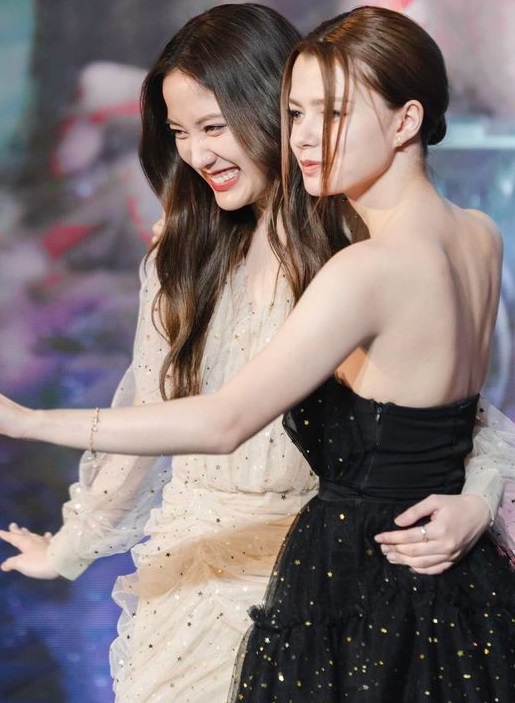
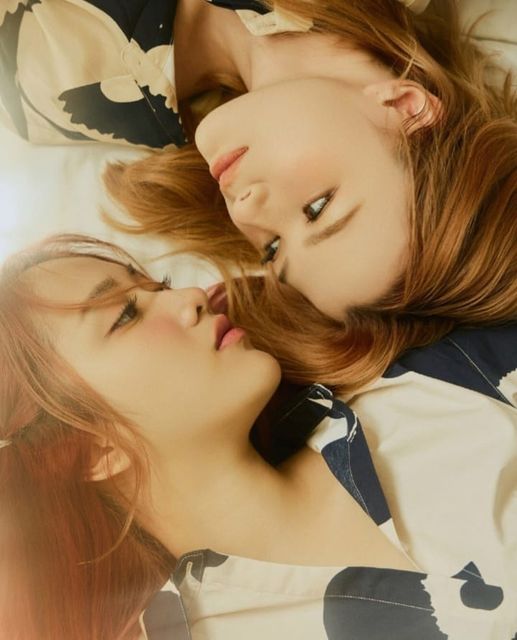

Rebecca Patricia Armstrong, commonly known as Becky
Armstrong, is a talented Thai-English actress, singer,
and model, born in 2002 (She has a Thai mother and a
British father). Becky made her debut in the Thai
entertainment industry in 2020, showcasing her acting
skills in the TV series “TharnType 2: 7 Years Of Love,”
where she played one of the supporting roles. Her
impressive performance in the show garnered attention and
set the stage for her promising career. Continuing
her journey in the entertainment world, Becky took on
more projects like “Secret Crush On You” in 2022, and
“GAP: the Series” in 2022, further establishing herself
as a rising star in the industry. With her talent and
versatility, she has already become a popular figure
among fans and industry insiders alike. As her career
continues to unfold, audiences eagerly await her future
projects and performances.
FreenBecky Promo
Video2
Becky Armstrong and Freen Sarocha Fall in Love
Uranus 2324: Thai Movie Trailer
Freen and Becky: Scene From Loyal Pin
Sam
& Mon: Love Me Like You Do
FreenBecky: The Gap Series Trailer
GAP The Series: Episode One
Sam
& Mon: Give Me Your Forever
Sam
& Mon: Call Out My Name
FreenBecky: Love Scene
Becky Armstrong: Introversion and Listening
Info: Thai Girls
Love
Olympian Erica Sullivan: Witty, Charming, Asian, and
Gay
There might not be anyone having more fun at the Tokyo
Olympics than swimmer Erica Sullivan. The 20-year-old
Las Vegas native has been having a blast inside and
outside the pool, showing off her funny personality and
charming local reporters with her fluent Japanese — all
while making sure she's leaving Tokyo with a medal
around her neck.
Sullivan made history in July 2021 when she brought home
the silver medal in the first women's 1,500-meter
freestyle in Olympic history behind world-record holder
Katie Ledecky. She did it in a country that she
frequently visited as a child, as her mother is a
Japanese citizen living in America on a green card.
"Just me getting to be on the podium, in Japan, as an
Asian American woman and getting to take silver in a
historical women’s event for the first time, as someone
who likes women and who identifies as gay — it’s so
cool,” she said in her press conference afterward. "It’s
awesome."
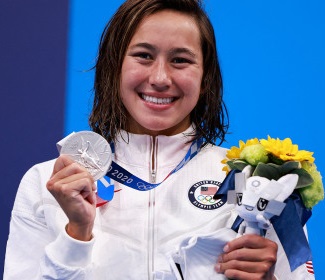
Erica Sullivan: Witty, Charming, Asian, and Gay
Olympian Erica Sullivan Proudly Declares Herself Queer
Team USA: Olympic Swimmer Erica Sullivan
Sullivan also joked about her performance in the
qualifying heats before Ledecky stole her thunder. "Fun
fact: I had the Olympic record for 16 minutes. Katie
Ledecky put in the work and threw down the heat after.
But I’ll proceed to flex my 16 minutes," she tweeted.
Her Twitter bio also notes that she is "good at not
drowning... sometimes."
She is more than happy to share the spotlight with
Ledecky, who gave her a big hug after they finished
first and second in the race.
"It's just awesome that I get to do this and really set
a landmark for women and also get to do it in Japan
where I have half my family," Sullivan said on NBC Today
Show. "It means a lot, and it's always an honor to do it
beside Katie because Katie's going to forever be in the
history books, so the fact that I get to be a small
little footnote in that is awesome."
She was asked after the race if she saw Ledecky's feet
when she was finishing. "Um, I saw her wake," Sullivan
told TeamUSA.org. "I’ve never actually seen Katie’s feet
in a race unless I’m severely out too fast."
Sullivan was then asked if she thought she had a shot at
catching the six-time Olympic gold medal winner. "Do you
know who that girl is?" Sullivan said. "Hell, no."
Sullivan spoke in fluent Japanese to reporters after her
race while also expanding on everything from her
upbringing to training in the "absolutely disgusting"
Lake Mead during the pandemic, and representing the
LGBTQ community. Sullivan, who came out as publicly gay
in 2017, said in the press conference that she is the
"epitome of an American person."
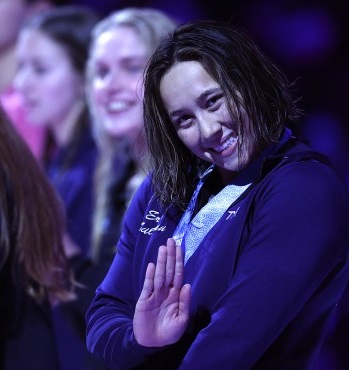
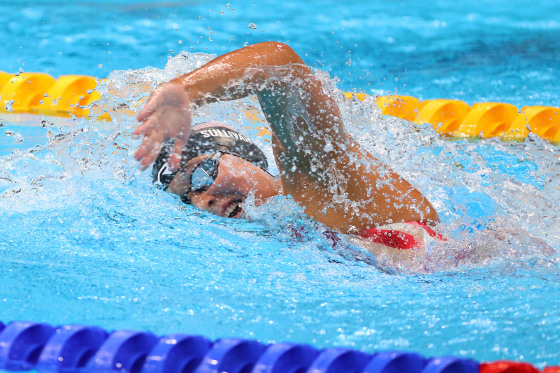
Erica Sullivan: Witty, Charming, Asian, and Gay
Olympian Erica Sullivan Proudly Declares Herself Queer
Team USA: Olympic Swimmer Erica Sullivan
"I’m multicultural. I’m
queer. I’m a lot of minorities. That’s what America is,"
she said. "To me, America is not about being a majority.
It’s about having your own start. The American dream is
coming to a country to be able to establish what you
want to do with your life."
Her drive to get prepared for Tokyo also led her to
train in Lake Mead outside Las Vegas when pool access
was restricted due to the pandemic. The conditions were
less than ideal. "There's just duck poop everywhere, and
it’s murky," she said. "It’s a solid brown-green on a
good day. It’s just gross. … We were getting duck mites.
Apparently they like to eat on ducks’ poop, and they
like still water. We were covered in bites. It was just
nasty. It built character development. I’m funnier
because of it."
Beneath the humor is also a 20-year-old who has faced
serious adversity. Her father, John, who was a swimmer
himself at the University of Wisconsin, died in 2017
from cancer only three months after he was diagnosed.
Sullivan, who was 16 at the time, made the national team
only four weeks after his death. "The last five years,
I've had a lot of struggles, and I think everyone knows
that. It's pretty much an open book now," she said in
the press conference. "But it feels good to have it all
finally pay off, and I really hope I can be like a
beacon of hope to anyone who's struggling with mental
health or coming out or any minority that they are, to
show that there's hope, and honestly me getting to do it
here, where half my family is from, means the world."
While her family was unable to be in Tokyo due to a ban
on spectators, they have been a crucial part of her
journey. Her late grandfather even served as an
architect on some of the Olympic venues in Tokyo. "It's
surprising and it's really cool that everything just
happened to line up and work out," Sullivan said on
TODAY. "My mom would've loved to be here, but she's at
home in Vegas cheering us on."
Sullivan is also making the most of her time in the
spotlight when it comes to meeting Olympic stars. "I
would like to use this shot to say that if the women’s
soccer team, especially Tobin Heath and Christen Press,
would like to reach out, that would mean the world," she
said at the press conference. At the rate she's going,
it will be the women's soccer team who's excited to meet
her.
[Source: Scott Stump, NBC Today, July 2021]
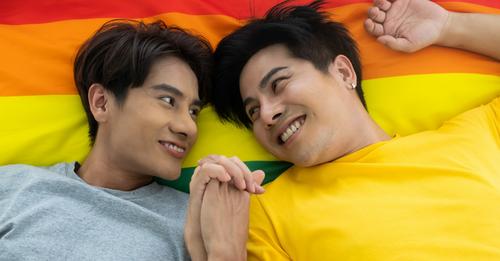
Modern Family: Celebrate Your Heritage
K-Pop Stars Who Are Openly LGBTQ
Kelly Marie Tran: Coming Out and Shaking Off the Shame
Hong Kong Judge Rules in Favor of Lesbian
Couple's Parental Recognition
Asian LGBTQ Groups Call for Recognition of Same-Sex
Couples
Thailand Becomes First Southeast Asian Nation to
Legalize Same-Sex Marriage
Pure Queer Joy in Bangkok as Thailand
Celebrates Pride
Daniel K Isaac: Rewriting the Script for
Queer Asian Visibility on Stage and Screen
K-Pop Idols Who Have Shown Support for the LGBTQ
Community
The Secret of Us: Sirilak Kwong and
Kornnaphat Sethratanapong
RuPaul’s Drag Race Crowns First Taiwanese
American Queen
Taiwan Makes History: Elects Huang Jie as First Ever Out
LGBTQ Legislator
Vietnamese Soccer Star Makes History by
Marrying Her Girlfriend
Thailand Moves One Step Closer to Marriage Equality with
Approval of Draft Bill
Japanese Court Rules Against Same-Sex Marriage Ban in
Major Win for LGBTQ Equality
Henry Tse Wins Landmark Trans Rights Case in Hong Kong
LGBTQ Celebs and Allies Talk the Magic of Being Queer
and Asian at Gold Gala 2023
Glenn Magpantay Is One of the Most Powerful Asian
American Gay Men in the Nation
Same-Sex Couples Will Now Have Full Adoption Rights in
Taiwan
Tokyo Rainbow Pride Parade Celebrates Advances in LGBTQ
Rights
LGBTQ People Must Condemn Violence
Against Asian-Americans
“HIV has taught us that
violence, bullying and discrimination only serve to
further marginalize the people most in need,” said
Winnie Byanyima, executive director of UNAIDS. “All
people, regardless of their sexual orientation, gender
identity or gender expression, are entitled to the right
to health, safety and security, without exception.
Respect and dignity are needed now more than ever
before.”
Asian-Pacific Islanders
are facing bigotry related to the current health crisis,
and we must stand up for them. Being an immigrant born
in South Korea is always a factor in who I am and how I
am treated in America. However, the xenophobia I am
experiencing related to the COVID-19 pandemic is
heartbreaking. In the past month alone, a mother yanked
her child away from me while saying disgustedly, “Those
people,” and a man turned his entire body away from me
in an airport. The disgust, anger, and fear that people
are directing toward Asian-Pacific Islander folks in the
United States is palpable.
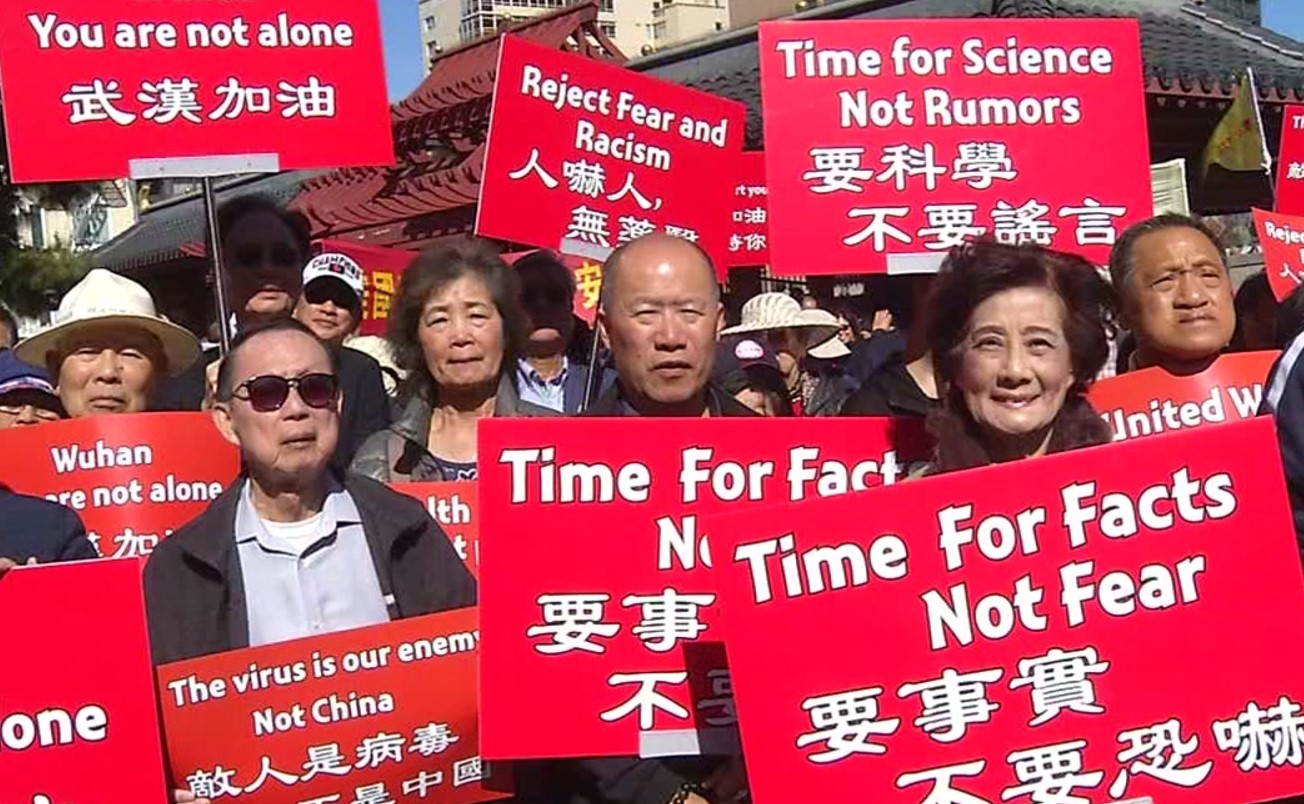
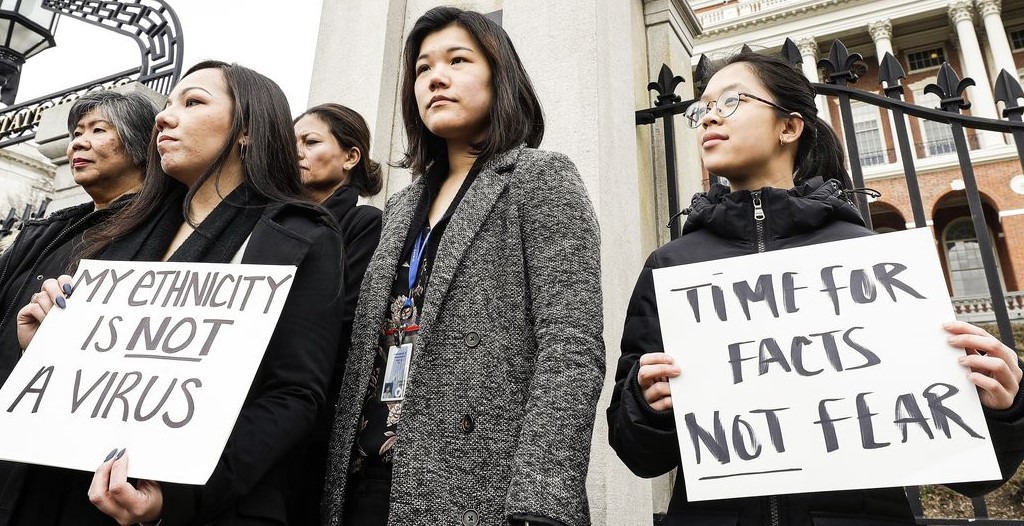
And the president of the United States isn’t helping
matters. While he has pulled back from calling COVID-19
“the “Chinese virus” in recent press briefings, the
damage is already done. President Trump put a target on
the backs of Asian-Americans like myself. The violence
against API folks is drastically increasing as a result
of xenophobia and fear due to COVID-19. In Midland,
Texas, a man stabbed three members of an Asian-American
family (including a 2-year-old and a 6-year-old) because
of their race. The FBI has since ruled this attack as a
hate crime, and ABC News reports the agency’s analysis
of crimes against API individuals is expected to surge
in the coming weeks.
As the pandemic continues, I am checking in with my API
siblings. Every single one of them is expressing deep
concern about the uptick in violence against our
community. They are anxious when leaving their homes to
buy essential items such as groceries or gas. They feel
more isolated than ever, especially practicing social
distancing and sheltering in place. These fears are even
more intensified when I speak to other queer and trans
Asian-Americans.
Mark Takano: Fighting Back Against Anti-Asian Racism
Advocate: LGBTQ People Must Condemn Violence Against
Asian Americans
CNN: COVID-19 Has Inflamed Racism Against Asian
Americans
Advocate: COVID 19 Doesn't Discriminate and Neither
Should We
Washington Post: Targeting Asian Americans During
COVIS-19 Crisis
Time Magazine: As Coronavirus Spreads, So Does
Xenophobia
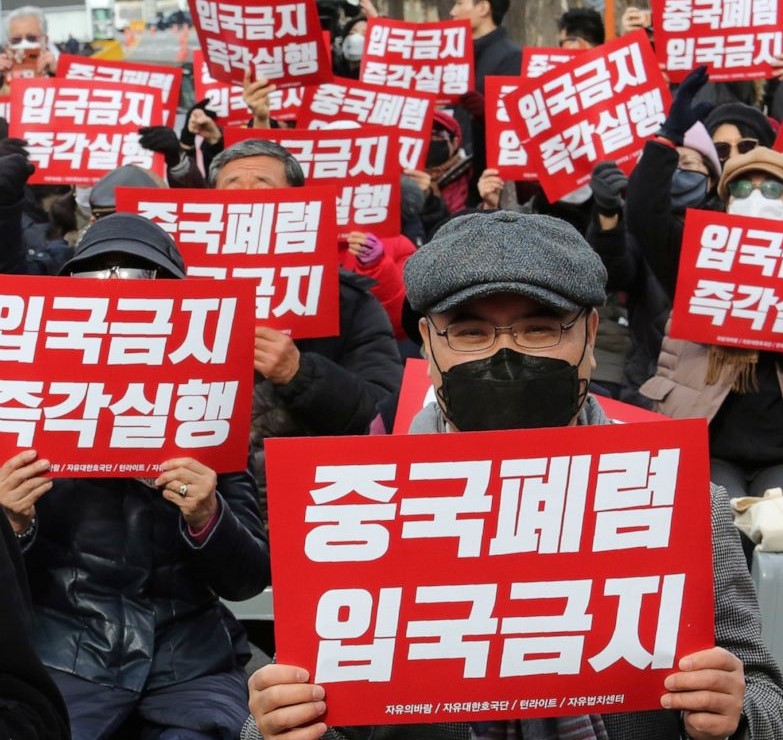
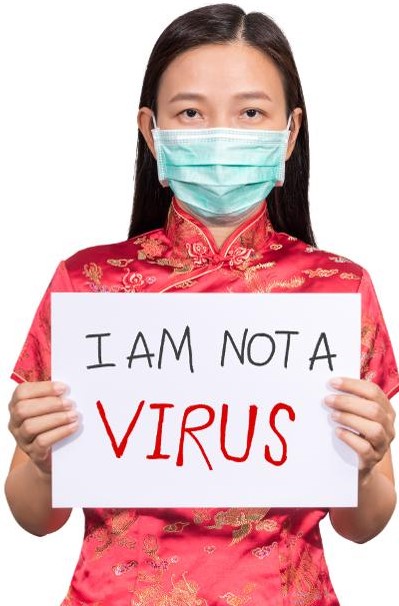
As the executive director of the Transgender Education
Network of Texas, I want to shine a light on the harm
caused by racist rhetoric. During a public health
crisis, LGBTQ people are always the first to be
negatively impacted. The COVID-19 pandemic is no
different. LGBTQ people are at greater risk of having
chronic illnesses and asthma, are more likely to smoke,
and are less likely to have health care. As a
transgender Asian-American, I know firsthand what it
feels like to be disrespected and mistreated just for
being who I am. When I see other populations mistreated
and harmed, I stand up for those individuals. I’m asking
my LGBTQ allies to do the same when they see an API
person in harm’s way.
I’m proud to be part of the LGBTQ movement that stands
behind our people, whether they are Black, Indigenous,
Muslim, Latinx, or anyone who’s being targeted for
something about themselves they have no control over.
It’s time to take a stand for all API folks and speak
out against this injustice and these racist attacks.
TENT is committed to addressing the rising violence
against API folks. We are deeply concerned by the
president’s insistence on referring to COVID-19 as the
“Chinese virus.” We’ve seen his racist rhetoric put to
work before: He’s vilified Muslims, targeted Latinx
folks, and used dog-whistle racist terms to activate
white nationalists against the Black community. Each
time, we’ve stood up, and now I’m asking you to join me
in standing up yet again. Thank you for volunteering
your time, donating your money, and defending our rights
whenever they’re under attack. I hope that you and your
loved ones are staying safe, protected, and well.
[Source: Emmett Schelling, Executive Director,
Transgender Education Network of Texas, Advocate
Magazine. April 2020]
Daniel K Isaac:
Rewriting the Script for Queer
Asian Visibility on Stage and
Screen
Japan Court Rules That Ban on Same-Sex
Marriage is Unconstitutional
Taiwan Considering Third Gender Option for IDs
Best
Korean Lesbian Movies
Same Love: LGBTQ Relationships in the Philippines
Soo Yeon and Eun Bin
Fans Cheer as Japanese Pop Star Shinjiro
Atae Comes Out on Stage
Wikipedia: LGBTQ Americans of Asian Decent
Video List: Famous Asian American LGBTQ People
HRC: Religion and Coming Out Issues for Asian Pacific
Americans
Kang Guk and Tae Joo: Take
Me Apart
How Do Lesbians Date in
China?
Our Families: LGBTQ Asian
and Pacific Islander Stories
Suyeon and Eunbin
Video: Coming Out to Immigrant Parents
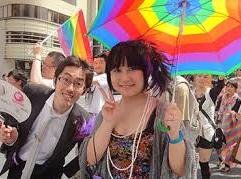
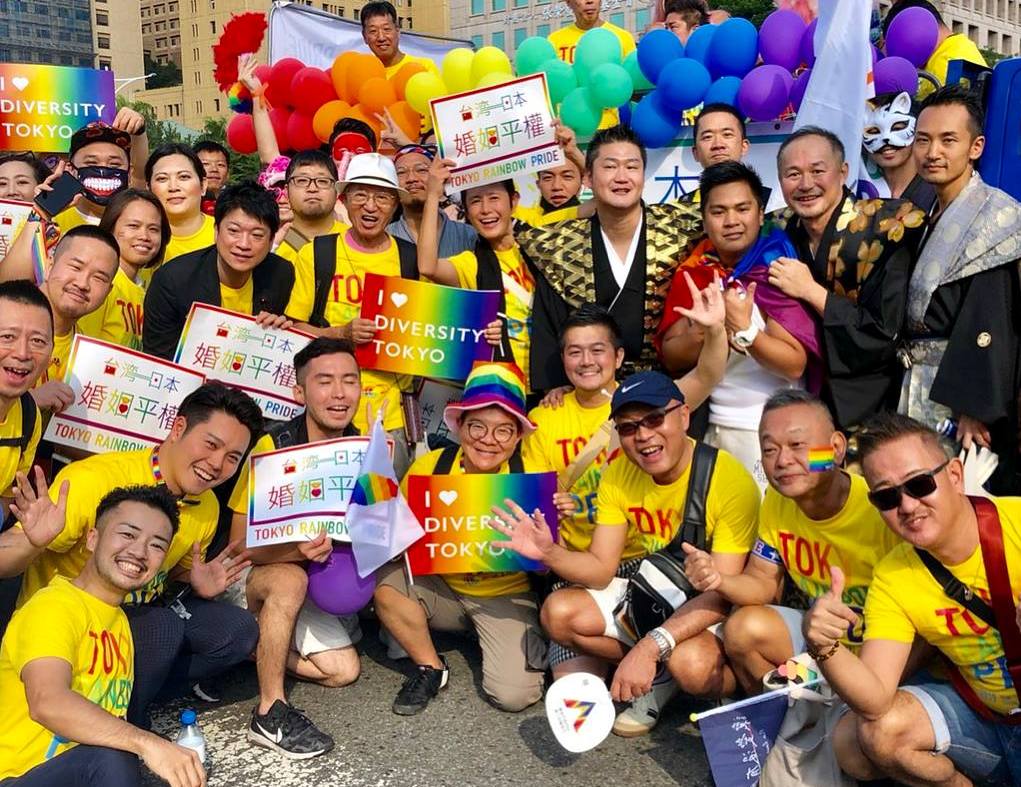
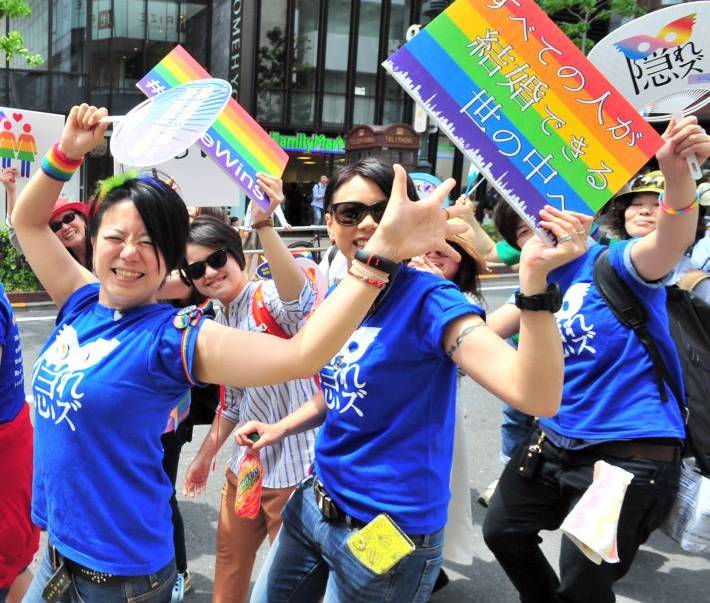
Challenges
of
LGBTQ
Asian
Pacific Islanders
Lesbian, gay, bisexual, transgender, and queer Asian
Pacific Islanders (API) are minorities within a
minority. Although the media are covering the lives,
stories and issues of LGBTQ people more frequently, and
often in a more fair, accurate and balanced manner,
repeatedly API LGBTQ voices, perspectives and opinions
are left out of the picture. Within the "mainstream"
LGBTQ community, Asian Pacific Islanders can feel
invisible since images in LGBTQ publications are
primarily white. Furthermore when APIs are represented,
they are presented stereotypical, exoticized or as the
"china doll", which reinforces stereotypes of APIs being
silent, demure and sexual objects
Pure Queer Joy in
Bangkok as Thailand Celebrates
Pride
Hong Kong: First Asian City to Host Gay Games
Adorable Chinese Lesbian Wedding
Voices of
Queer Asian Youth
True
Stories From Queer Asia
Japanese
Court Rules Same-Sex Marriage Ban is
Unconstitutional
Les Love: Chinese Lesbian Film
Korean Drama: Better With
You
Famous Asian Transgender People
Video Talk: Being a Chinese Lesbian
Edgar and James: Gay Philippine Wedding
Lesbian Couple: Galliyan Music Video
API LGBTQ Community in
San Francisco
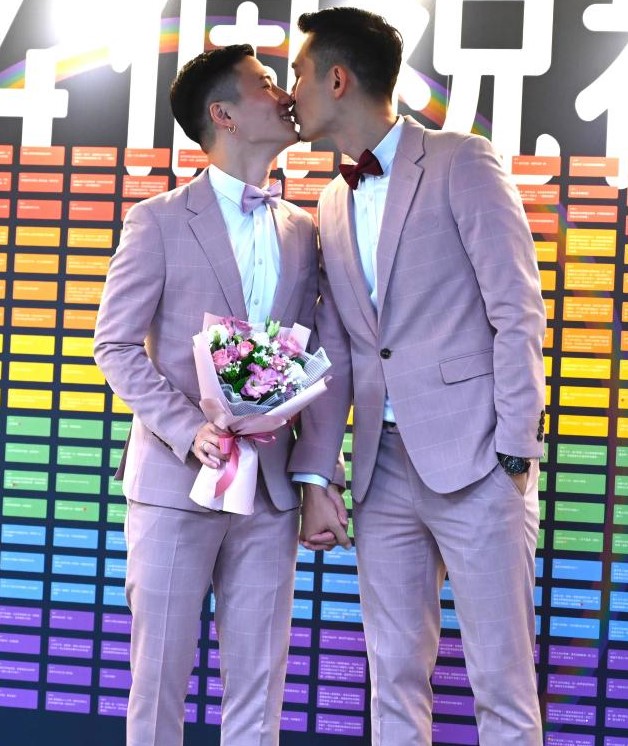 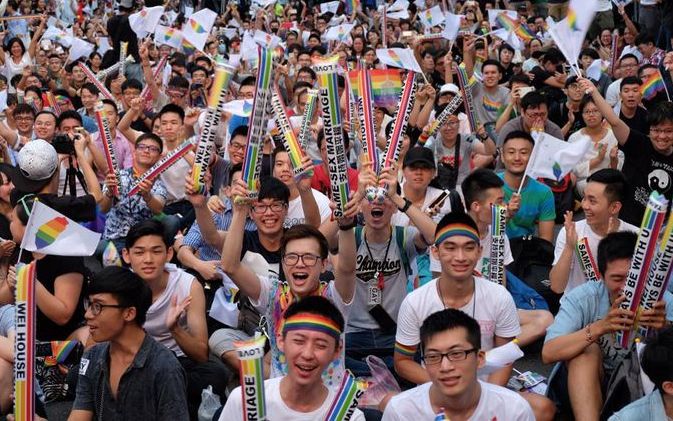
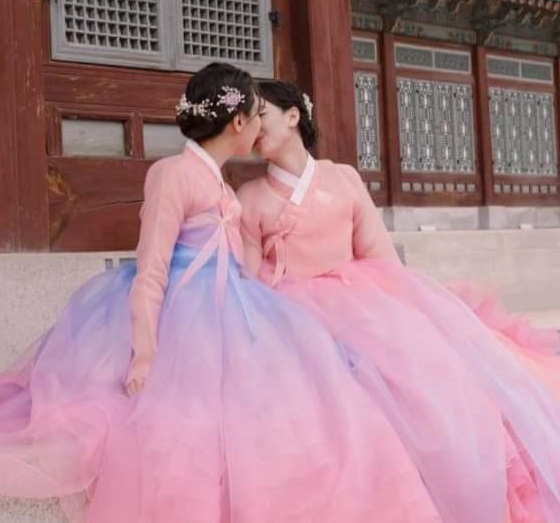
Acceptance
of LGBTQ Asian Americans
Gay Asian Americans tend to be rated as more American
than their presumably straight counterparts, according
to new research published in Social Psychological and
Personality Science.
“Research on race is often separate from research on
sexual orientation. Here we bring the two together to
understand how they interact to influence judgments of
how American someone is considered,” said study author
Sapna Cheryan, a University of Washington associate
professor of psychology.
In two studies of 1,336 individuals recruited from a
university campus, participants were randomly assigned
to read a description of a person, who was described
either as either a man, a woman, a white person, or an
Asian American person. The person’s sexual orientation
was noted as “gay” or wasn’t listed.
The participants were then asked to rate the person’s
American identity with several questions like: “How
American is this person?”, “How fluently do you think
this person speaks English?”, and “How integrated is
this person in American culture?”
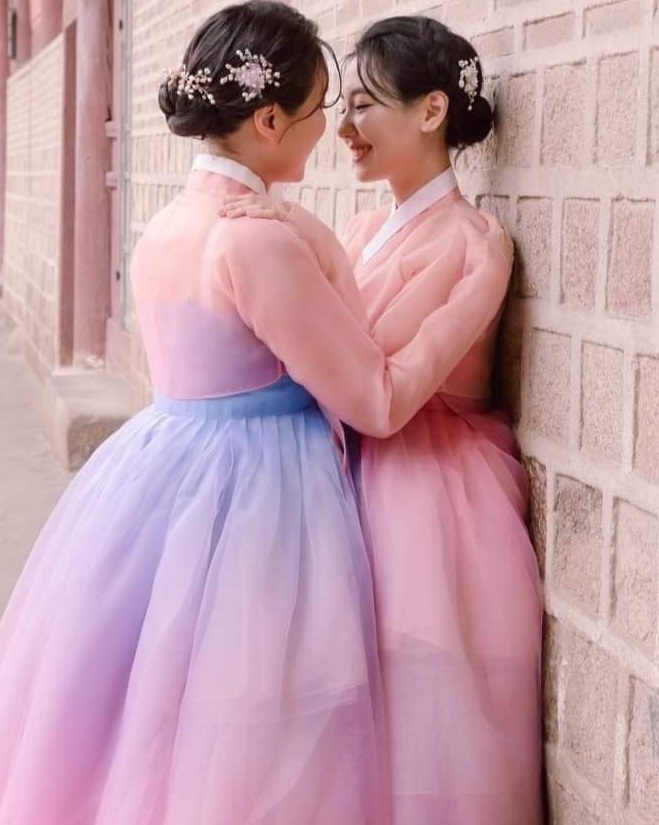
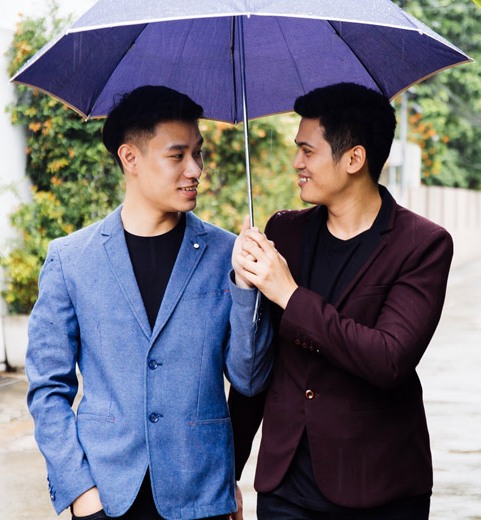

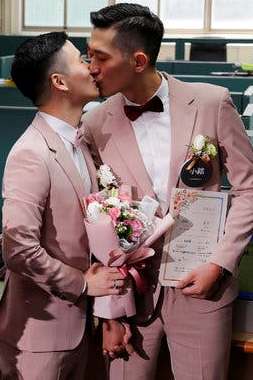
K-Pop Idols Who Have Shown
Support for the LGBTQ Community
LGBTQ Millennials: Acceptance and Tolerance in Singapore
Korean Film: Lesbian Love Story
Our
Families: LGBTQ Asian and Pacific
Islander Stories
Marrz and Inna Fall in Love
Beautiful Vietnamese Lesbian Wedding
Justin and Tim: Kauai Wedding
HRC: Society and Coming Out Issues for Asian Pacific
Americans
Gay Guide to Bangkok for
First Timers
The researchers found that Asian Americans who were
identified as gay were perceived to be more American
than Asian Americans whose sexual orientation was not
identified. There was no significant difference observed
between Asian American and non-Asian American
participants.
“One possible extension of this work is that gay Asian
Americans may be less likely to have their American
identities questioned than straight Asian Americans,”
Cheryan said. “At the same time, being gay puts people
more at risk for other forms of prejudice based on
sexual orientation.”
In a third study of 75 university students, the
researchers found that gay people were perceived as more
accepted in American than Asian culture. A fourth study
of 101 students found that gay people were viewed as
more American when their country of origin was perceived
as less accepting of gay people than the United States.
“American culture is perceived as more accepting of gay
people compared to Asian culture. As a result, gay Asian
Americans are perceived as more likely to be American
than their straight counterparts,” the researchers
explained in their study.
The study (like all research) includes some caveats. The
generalizability of findings could limited because the
sample was predominantly college students. Future
research could address whether the findings extend to
other ethnic groups as well.
“For example, countries in the Middle East and North
Africa tend to have anti-LGBTQ laws, and gay people
associated with these cultures may be assumed to be more
American than their straight counterparts,” the
researchers noted.
[Source: Gay Asian Americans Are Seen as More American
Than Asian Americans Who Are Presumed Straight by Mika
Semrow, Linda X. Zou, Shuyang Liu, and Sapna Cheryan]
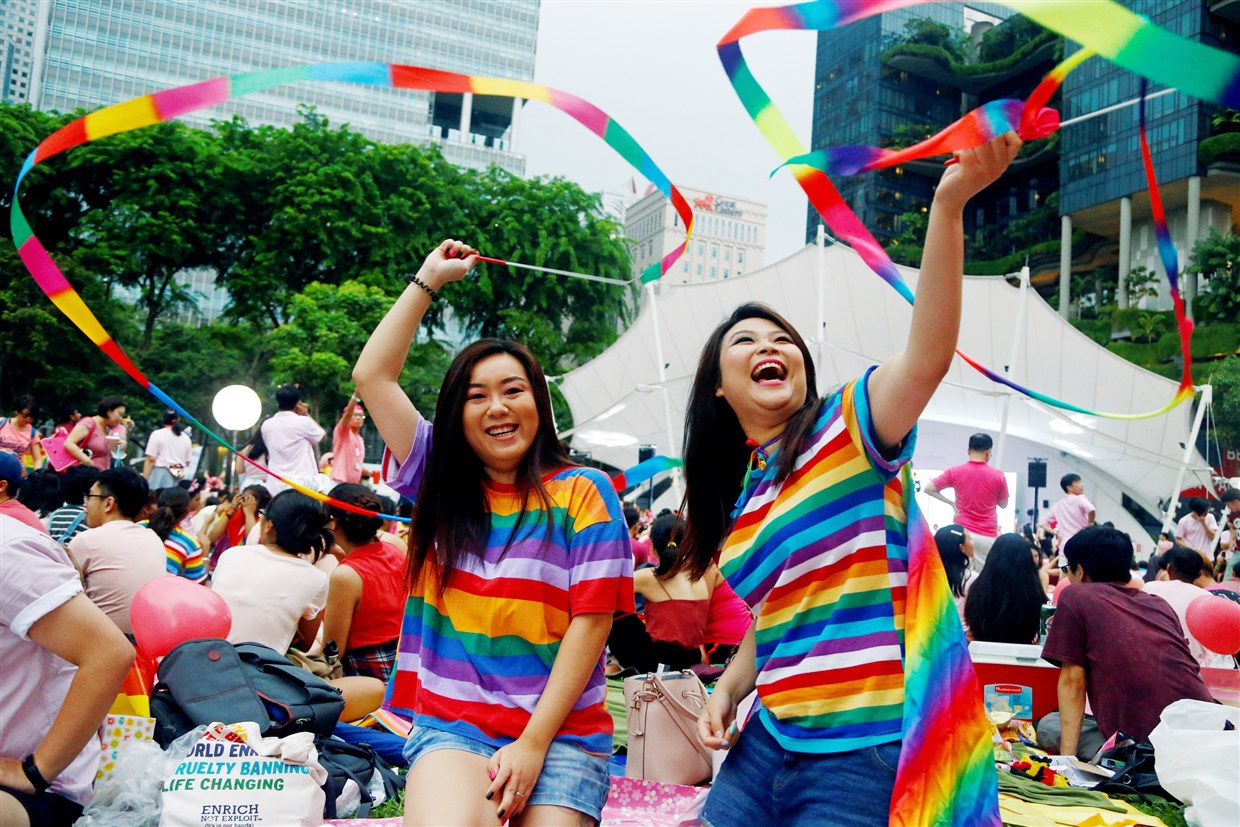
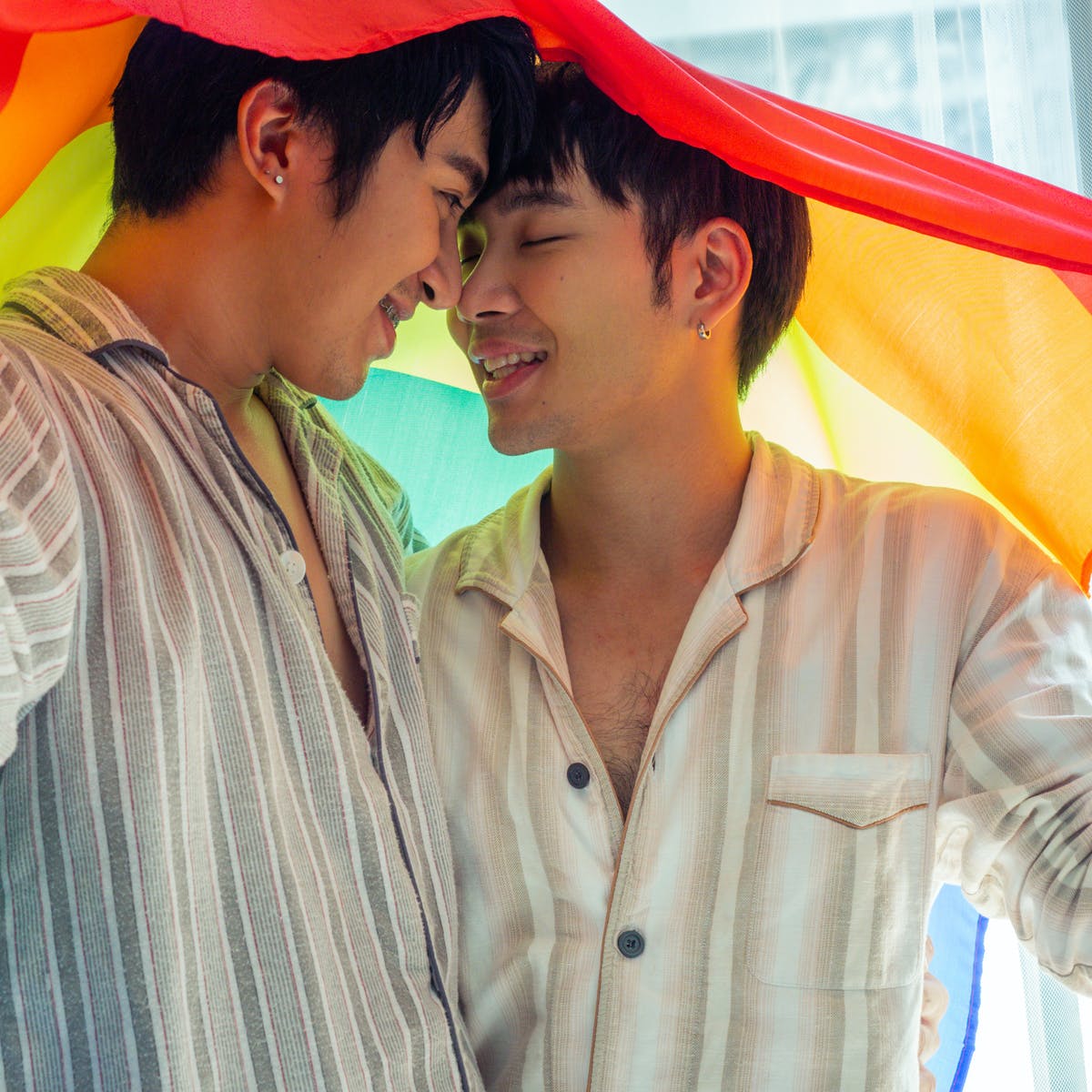
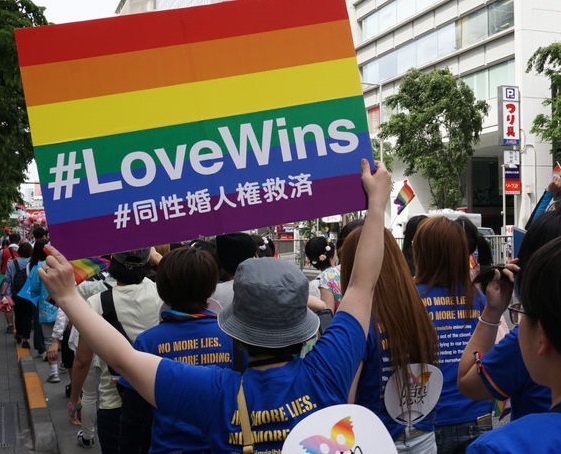
Daniel K Isaac:
Rewriting the Script for Queer
Asian Visibility on Stage and
Screen
K-Pop Idols Who Have Shown Support for the LGBTQ
Community
Real Americans: Gay Asian Americans
Yoon Bok
and Jeong Hyang: Painter of the Wind
Video Talk: Being a Chinese Lesbian
Best Japanese
Lesbian Movies
True Stories From Queer
Asia
Williams Institute Report: Demographics of LGBTQ Asian
Pacific Islanders
Jan Di and Jae Kyung
Adorable Lesbian Couple: Evening Routine
The Secret of Us: Sirilak Kwong and
Kornnaphat Sethratanapong
Soo Yeon
and Eun Bin
Voices of
Queer Asian Youth
Korean
Drama: Better With You
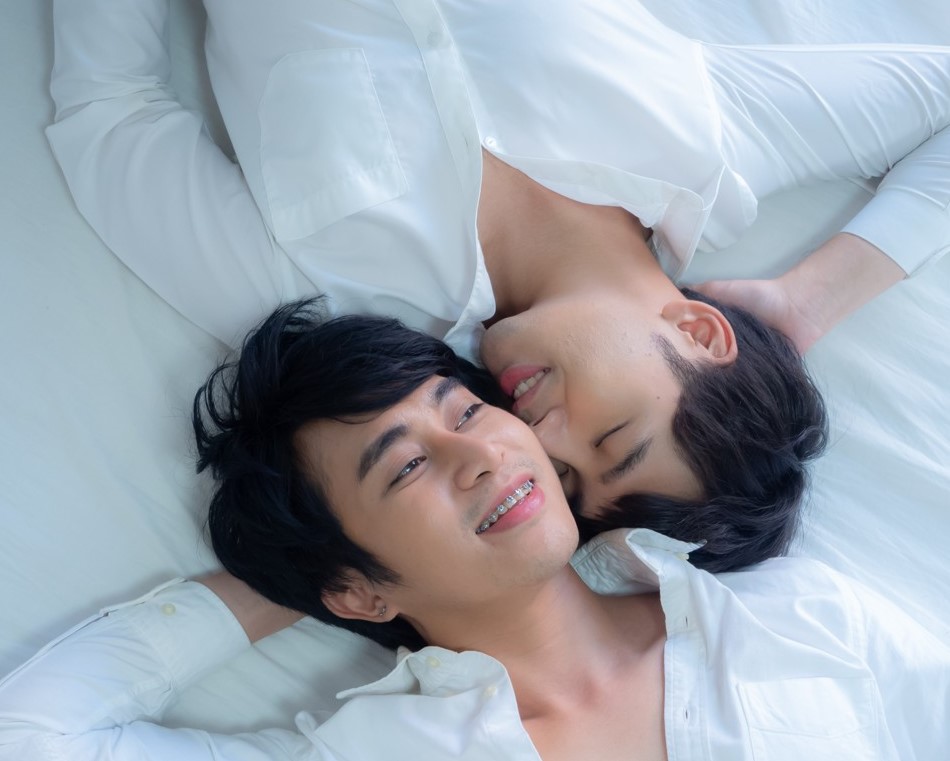
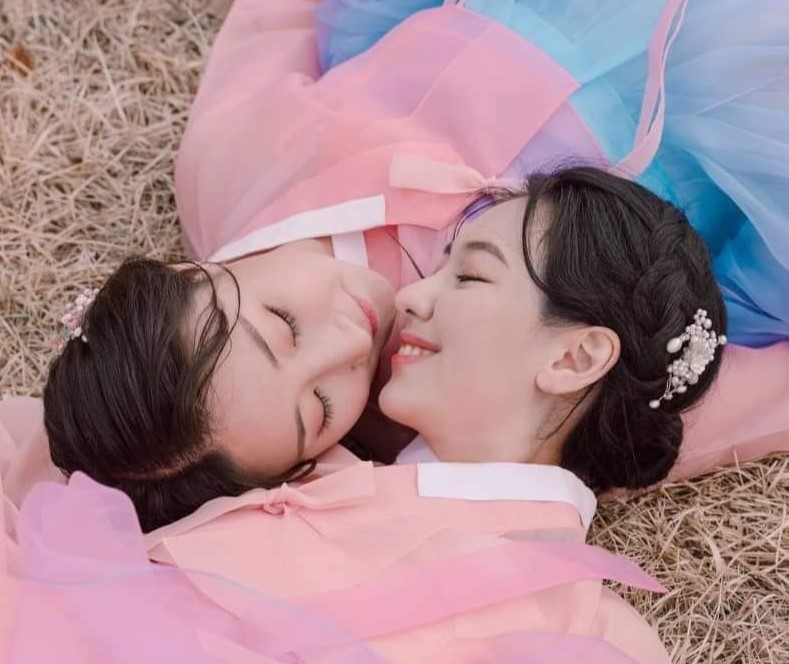
Pure Queer Joy in Bangkok
as Thailand Celebrates Pride
Video Story: Coming Out to My Asian Parents
Lesbian Couple: Ek Dil Ek Jaan Music Video
Taiwan Becomes First Asian Country to Legalize Same Sex
Marriage
Bank and Kim: Gay Thai Wedding
Living in the Margins: National Survey of LGBTQ Asian
Americans
Gay Guide to Bangkok for
First Timers
Gardens of the Wind
Video: Talk with Chinese Lesbian Couple
Best
Korean Lesbian Movies
Japanese
Court Rules Same-Sex Marriage Ban is
Unconstitutional
Queer
Asian Project
Fans Cheer as
Japanese Pop
Star Shinjiro
Atae Comes Out
on Stage
China's Thriving Drag Queen Culture
Kang Guk
and Tae Joo: Take Me Apart
Thailand Same-Sex Marriage Ceremony
Queer
Korean Musicians
Holland - Well-known as the media’s first openly gay
K-Pop idol. He debuted in January 2018 and stated that
he wanted to make his debut as a singer to speak up on
his experiences with violent assaulters and victims
stricken on sexual minorities. He originally debuted
without an agency since many did not want to sign
someone who would speak on sexual minorities, but has
since signed to an agency.
Harisu - Transgender entertainer and singer. Born
in 1975, she identified as female from early childhood
and had sex reassignment surgery in the 1990s. She has
been active since 2001 and is active in South Korea,
Taiwan, and Hong Kong.
Lady - First all-transgender group in South
Korea. The group debuted in 2005 and had four members:
Sinae, Sahara, Binu, and Yuna. The group’s main
inspiration is from Harisu. Sadly, the group wasn’t able
to be promoted well due to their music videos not being
well received. The group disbanded in 2007.
Maman - First openly gay idol. Shortly after
debuting, Maman came out as gay in an interview. Due to
struggles with her recording company, she has been
inactive since 2015.
Korea Boo: Openly Queer K-Pop Idols
K-Pop Map: Artists Who Represent the LGBTQ Community in
South Korea
Rolling Stone: BTS Breaking K-Pop Barriers and Taboos
Pop Asia: Most Popular K-Pop Idols Voted by LGBTQ
Koreans
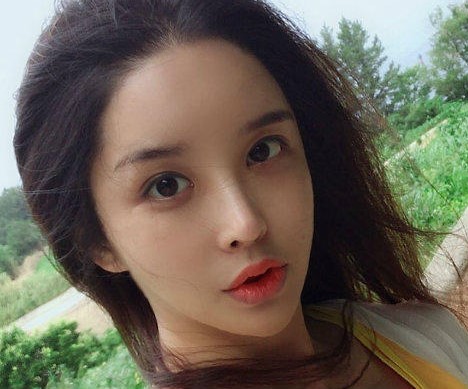
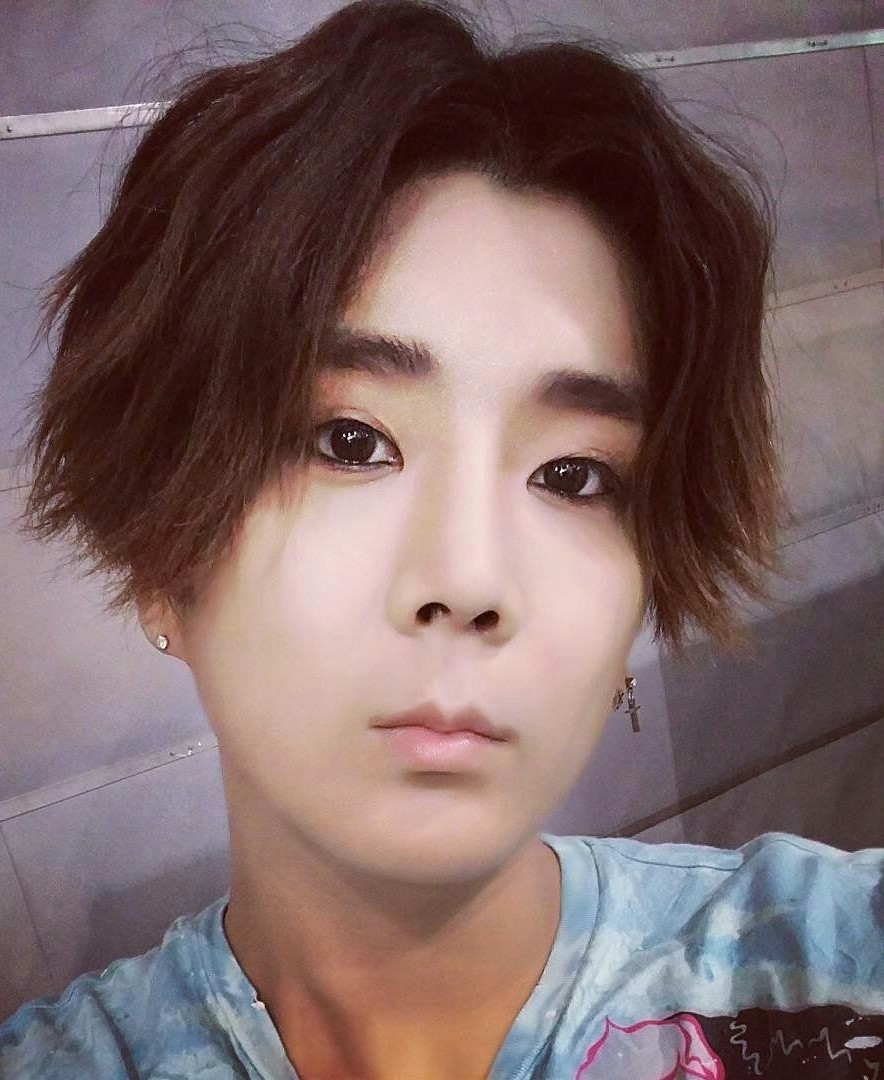
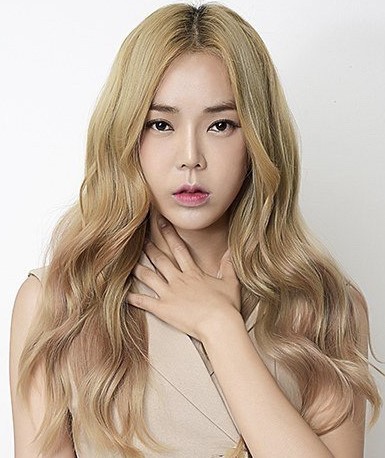
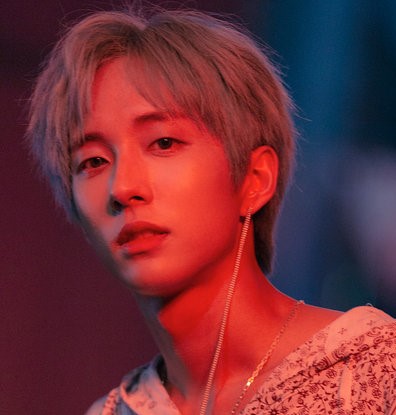
Hanbit - Model, actress, and singer who debuted
in 2016 under the girl group Mercury. With the support
of her parents, Hanbit underwent male-to-female sex
reassignment surgery in 2006. In an interview, she
stated, "Living with a female body itself brought me the
greatest feeling of euphoria."
Hansol - Came out as asexual and aromantic. He
has since been vocal about his queer identity and how it
feels to live as a queer man in South Korea. When
talking about his sexuality, Hansol has stated that,
"I’m not attracted to the opposite sex, but I’m also not
attracted to the same sex. I never bothered to date and
I hate sex very much."
D.I.P - Debuted in 2016, and members Seungho and
B Nish are in a public relationship. The two announced
they were dating and are very open about their
sexuality. D.I.P’s leader is also LGBTQ. He is bisexual
and has stated that he is attracted to both men and
women.
Marshall Bang - Originally from Orange County, he
traveled to Korea to become a K-Pop star. He has been
openly gay since 2015 and debuted in 2018. Though his
gay Korean friends told him it would be better to stay
in the closet, he chose to come out as a way to be his
true self.
K-Pop Idols Who Have Shown
Support for the LGBTQ Community
Asian Couple: Pre-Wedding Photos
Our Families: LGBTQ Asian
and Pacific Islander Stories
HRC: Being Asian Pacific Islander and LGBTQ
Vietnam's The Bachelor: Two Women Contestants Find Love
Best Japanese
Lesbian Movies
Korean Drama: Better With
You
Japanese Court Rules
Same-Sex Marriage Ban is Unconstitutional
Williams Institute Report: Demographics of LGBTQ Asian
Pacific Islanders
Jan Di and Jae Kyung
Demographics of
LGBTQ
Asian
Pacific Americans
According to the Williams Institute, at the UCLA School
of Law, there is an estimated 324,600 LGBTQ API adults
in the US. There are 32,931 API individuals in
same-sex couples in the US. 25% of API same-sex couples
are raising children. LGBTQ API adults tend to live in
areas where there are higher proportions of API
individuals, as opposed to areas with higher proportions
of the broader LGBTQ population.
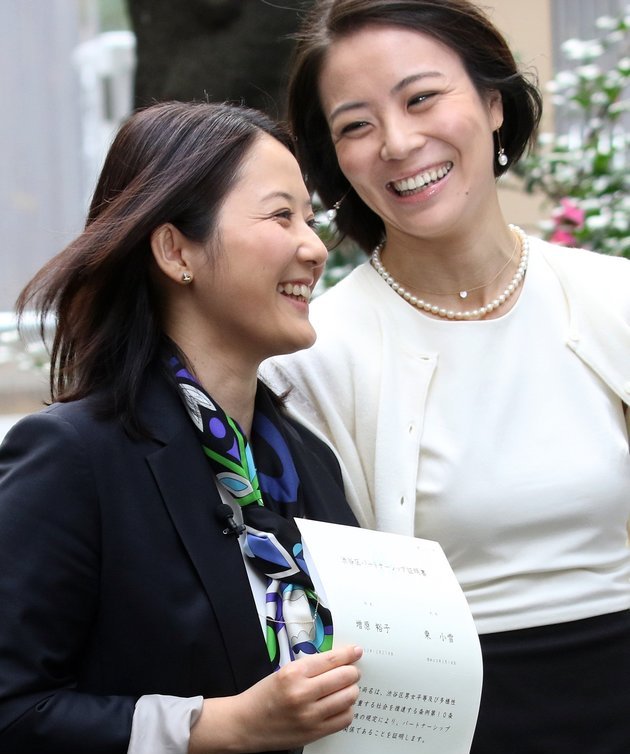
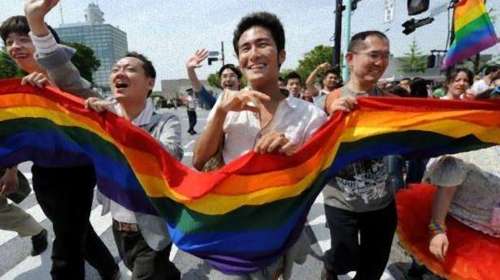
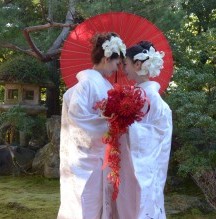
No
More Blues by FreenBecky
Thailand Parliament Debates Marriage Equality Bill
LGBTQ Rights in Asia: Progress and
Setbacks in 2023
K-Pop Idol Park Chohyeon Comes Out and
Goes Public With Her Girlfriend
Japanese Pop Star Shinjiro Atae Comes Out As Gay
Drag Domination: Japan’s Drag Scene is
Bursting at the Seams
Proud to be Queer and Vietnamese
Miss Universe Philippines Michelle Dee
Comes Out as Bisexual
Japanese Court Rules
Same-Sex Marriage Ban is Unconstitutional
Transgender Asian Pacific Islanders Face
Significant Discrimination
LGBTQ
Rights in Japan
Lesbian, gay, bisexual, transgender, and queer persons
in Japan may face legal challenges not experienced by
non-LGBTQ persons. Same-sex sexual activity was
legalized in 1880 after the installation of the
Napoleonic Code and the age of consent is currently
equalized. Same-sex couples and households headed by
same-sex couples are ineligible for the legal
protections available to opposite-sex couples. Japanese
culture and major religions originated in and imported
to Japan do not have a history of hostility towards
homosexuality, and a majority of Japanese citizens are
reportedly in favor of accepting homosexuality, with a
recent poll indicating that 54 percent agreed that
homosexuality should be accepted by society while 36
percent disagreed, with a large age gap. Although many
political parties have not openly supported or opposed
LGBTQ rights, there are several openly LGBTQ politicians
joined in office. A law allowing transgender individuals
to change their legal gender post-sex reassignment
surgery was passed in 2002. Discrimination on the basis
of sexual orientation is banned in certain cities.
Being Gay in Japan
Japan's Tolerance of LGBTQ People Has Grown
Intimate Look at Queer Life in Japan
Fans Cheer as Japanese Pop Star Shinjiro
Atae Comes Out on Stage
Japanese Govt Official Criticizes LGBTQ Community
Are LGBTQ People Accepted in Japan?
Japanese Wedding Ceremony
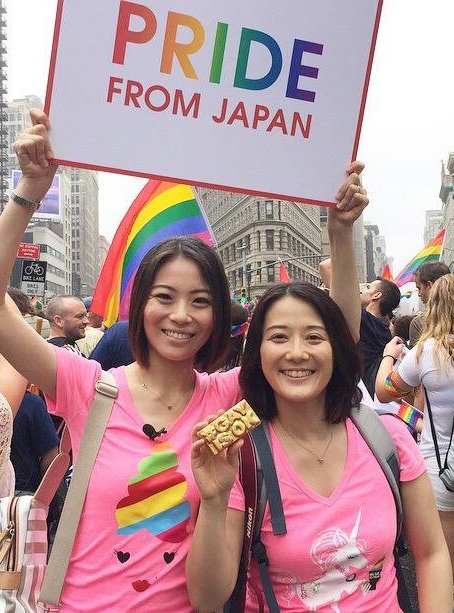
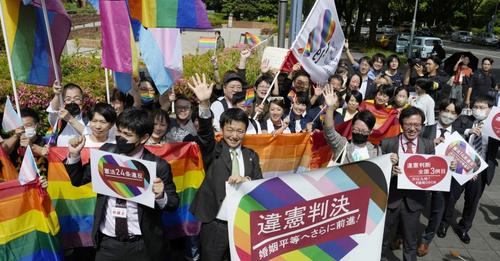
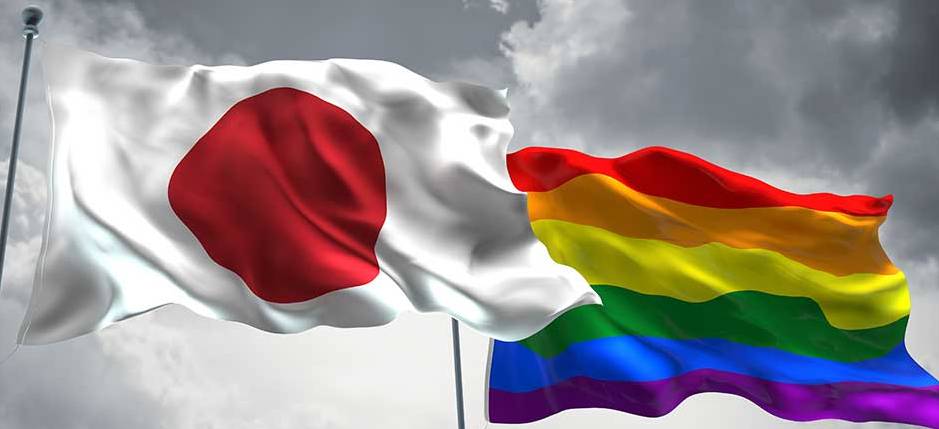
Marriage Equality in Taiwan
On
May 24, 2017, Taiwan’s constitutional court declared
that same-sex couples have the right to legally marry,
the first such ruling in Asia, sparking celebration by
activists who have been campaigning for the right for
years. The court, known as the Judicial Yuan, said current
marriage laws were “in violation of both the people’s
freedom of marriage and the people’s right to equality”,
and it gave two years for legal amendments to allow
same-sex marriage. “If relevant laws are not amended or
enacted within the said two years, two persons of the
same sex who intend to create the said permanent union
shall be allowed to have their marriage registration
effectuated,” the court said.



Hundreds of supporters of same-sex marriage gathered in
the street next to the island’s parliament to celebrate
the decision, holding colorful umbrellas to ward off a
drizzle. “This ruling has made me very happy,” said Chi
Chia-wei, a veteran gay rights activist who had
petitioned the court to take up the issue. The ruling
clearing the way for same-sex marriage is the first in
Asia, where socially conservative attitudes largely hold
sway.
National Queer
Asian Pacific Islander Alliance
Kang Guk and Tae Joo: Take
Me Apart
Soo Yeon and Eun Bin
United Nations: Being LGBTQ in Asia
Top Tomboy Couples in Vietnam
True
Stories From Queer Asia
Best
Korean Lesbian Movies
Video Talk: Being a Chinese Lesbian
Two Korean Girls Fall in Love
Adorable Chinese Lesbian Wedding
Marrz and Inna Fall in Love
Jake Choi: Korean LGBTQ Activist
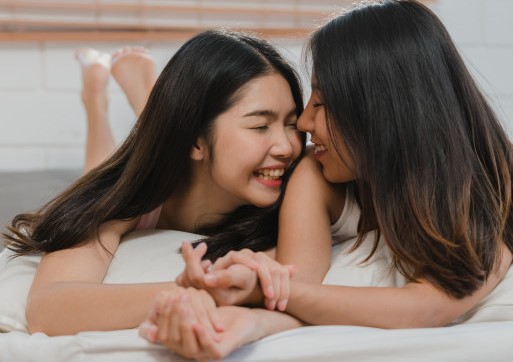
K-Pop Idols Who Have Shown Support for the LGBTQ
Community
Pure Queer Joy in Bangkok as Thailand
Celebrates Pride
LGBTQ Asian Americans Viewed as More American
How Do Lesbians Date in
China?
Taiwan Becomes First Asian Country to Legalize Same Sex
Marriage
Video Story: Coming Out to My Asian Parents
Asia's Biggest Gay Pride
Parade
Beautiful Vietnamese Lesbian Wedding
Korean Film: Lesbian Love Story
Les Love: Chinese Lesbian Film
New Study: Gay Asian Americans More Accepted as
Americans
Voices of Queer Asian
Youth
Gardens of the
Wind
Hong Kong Court Rules in Favor of Gay Couple
LGBTQ Millennials: Acceptance and Tolerance in Singapore
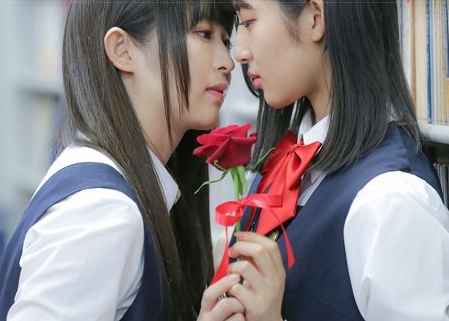
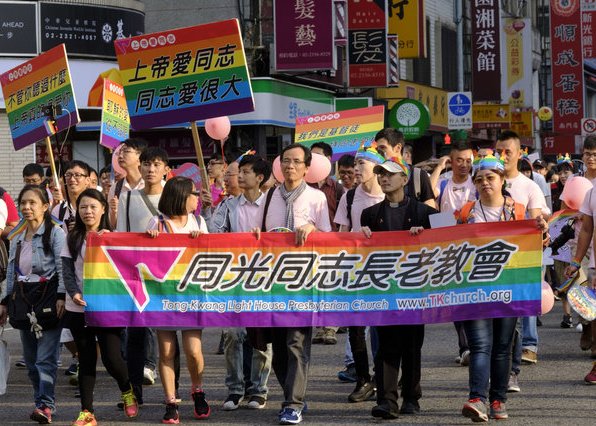
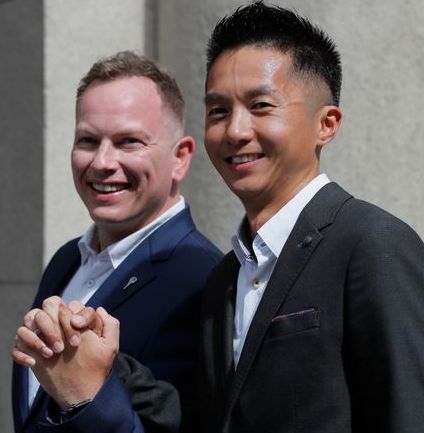
LGBTQ
Culture in China
Tongzhi Community
LGBTQ identities and communities have expanded in
Mainland China since the 1980s as a result of
resurfacing dialogue about and engagement with queer
identities in the public domain. Since the 1990s, the
preferred term for people of diverse sexuality, sex and
gender is tongzhi. While lesbian, gay, bisexual,
transgender, and queer culture remains largely
underground, there are a plethora of gay cruising zones
and often unadvertised gay bars, restaurants and discos
spread across the country. The recent and escalating
proliferation of gay identity in Mainland China is most
significantly signaled by its recognition in mainstream
media despite China's media censorship. There are also
many gay websites and LGBTQ organizations which help
organize gay rights' campaigns, AIDS prevention efforts,
film festivals and pride parades. Public sentiment
on homosexuality in China is in limbo. While it is not
outright condemned, neither is it fully accepted as
being part of the social norm.
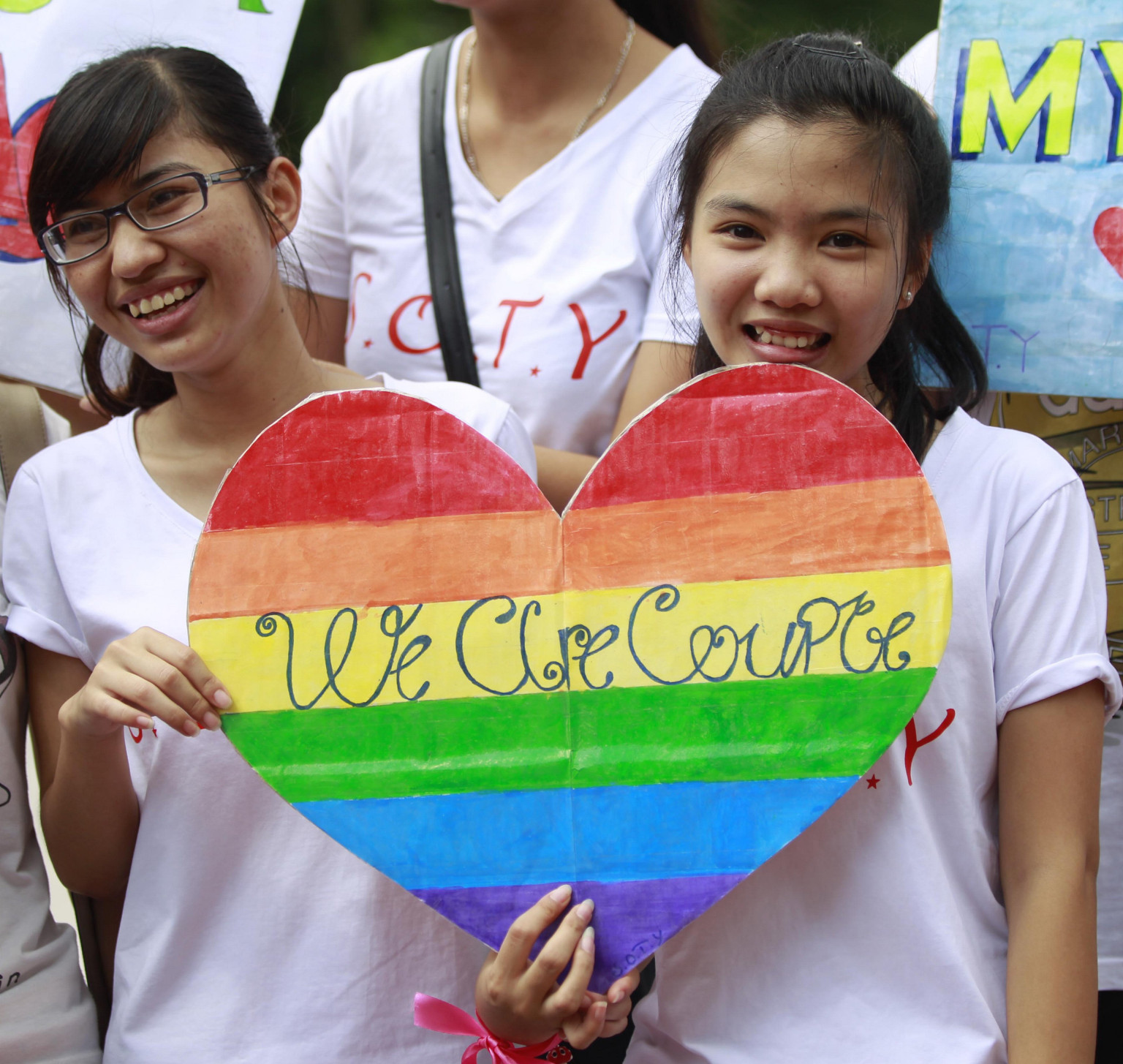
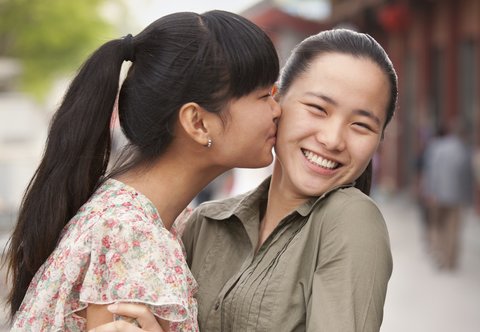
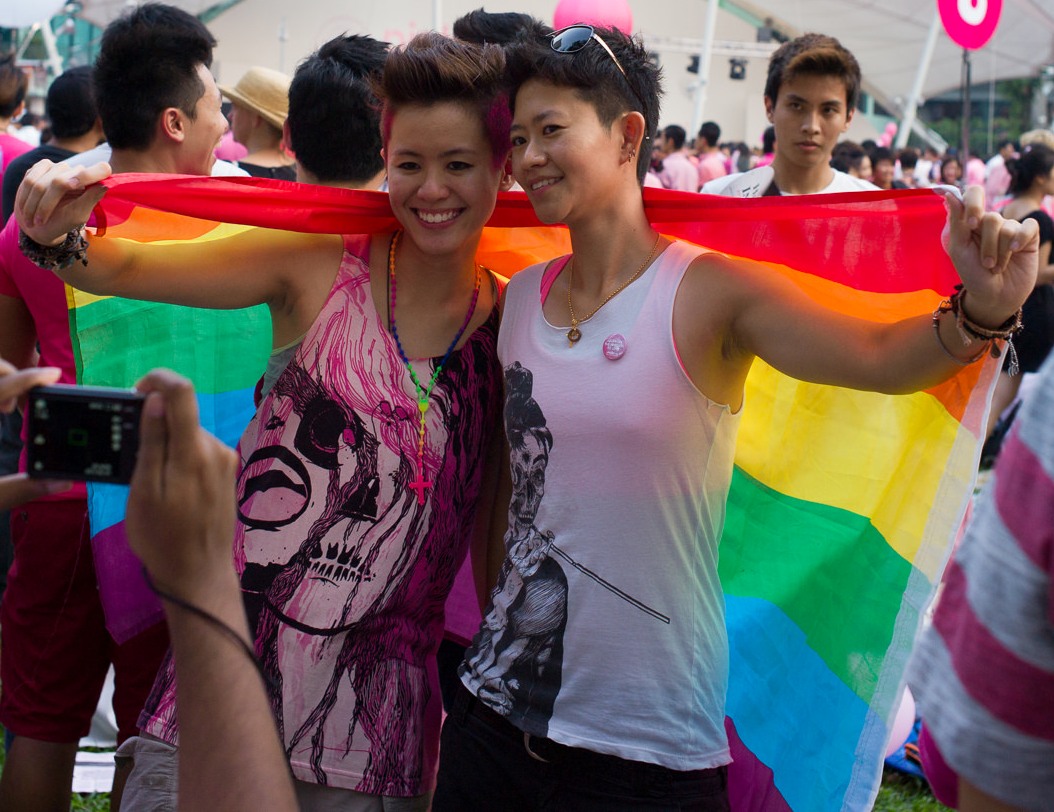
The influence of Western gay and lesbian culture on
China's culture is complex. While Western ideas and
conceptions of gayness have begun to permeate the
Chinese gay and lesbian identity, some Chinese gay and
lesbian activists have pushed back against the
mainstream politics of asserting one's own identity and
pushing for social change due to its disruption of
family ties and social harmony. Most of the
exposure to Western gay and lesbian culture is through
the internet or the media, but this exposure is
limited—mainstream symbols of gay and lesbian culture
(such as the rainbow flag) are not widely recognizable
in China.
In 2009 a male couple held a symbolic wedding in public,
and China Daily took the photo of the two men in a
passionate embrace across its pages. Other symbolic gay
and lesbian weddings have been held across the country
and have been covered positively by the Chinese media.
In 2012, Luo Hongling, a university professor, committed
suicide because she knew her husband was a gay man. She
alleged their marriage was just a lie since the man
could not admit he was gay to his parents. Luo was
considered a "homowife," local slang for a woman married
to a homosexual male, akin to the English term "beard".
In 2016, the State Administration of Press, Publication,
Radio, Film and Television banned images of homosexuals
on television.
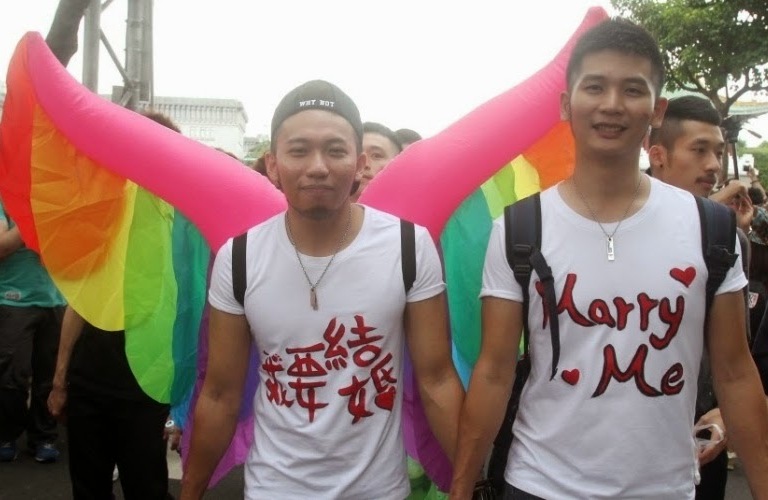
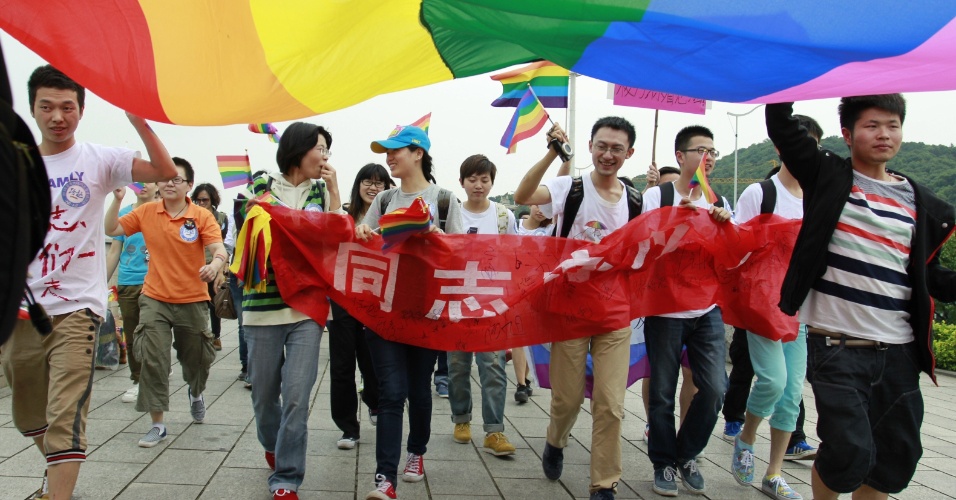
Adult, consensual and non-commercial homosexuality has
been legal in China since 1997, when the national penal
code was revised. Homosexuality was removed from the
Ministry of Health's list of mental illnesses in 2001
and the public health campaign against HIV/AIDS pandemic
does include education for men who have sex with men.
Officially, overt police enforcement against gay people
is restricted to gay people engaging in sex acts in
public or prostitution, which are also illegal for
heterosexuals.
However, despite these changes, no civil rights law
exists to address discrimination or harassment on the
basis of sexual orientation or gender identity.
Households headed by same-sex couples are not permitted
to adopt children and do not have the same privileges as
heterosexual married couples.
Research conducted by The Chinese Journal of Human
Sexuality in 2014 showed that nearly 85 percent of the
921 respondents supported same-sex marriage, while about
2 percent of them oppose the idea, and 13 percent of
them said "not sure."
On January 5, 2016, a court in Changsha, southern Hunan
province, agreed to hear the lawsuit of 26-year-old Sun
Wenlin filed in December 2015 against the Furong
district civil affairs bureau for its June 2015 refusal
of the right to register to marry his 36-year-old male
partner, Hu Mingliang. On April 13, 2016, with hundreds
of gay marriage supporters outside, the Changsha court
ruled against Sun, who vowed to appeal, citing the
importance of his case for LGBTQ progress in China. On
May 17, 2016, Sun and Hu were married in a private
ceremony in Changsha, expressing their intention to
organize another 99 LGBTQ weddings across the country in
order to normalize gay marriage in China.
Chinese Social Terminology
|
 |
Tong Xing |
Homosexual/Same Sex |
|
 |
Ji Lao |
Gay Guy |
|
 |
La La |
Lesbian Woman |
Japanese Media Terminology
GL - Girl Love
BL - Boy Love
Yaoi - Japanese term for a genre
of fictional media (manga,
anime, novels, fan fiction) that
focuses on sexual or romantic
relationships between male
characters, typically created by
women for a female audience.
Traditionally refers to M/M
content created primarily by
women for a female audience. In
Western fandoms, people often
attempt to separate "yaoi"
(adult/explicit) from "shonen-ai"
(soft romance), but in Japan,
these are largely unified under
the commercial term BL.
Fujoshi - Japanese term that
refers to female fans of media
focusing on gay male
relationships. To "fujo out" is
to delight in or obsess over gay
relationships between men.
Fudanshi - Japanese term
that refers to male fans of
media focusing on gay male
relationships.
Seme - Dominant
Uke - Submissive
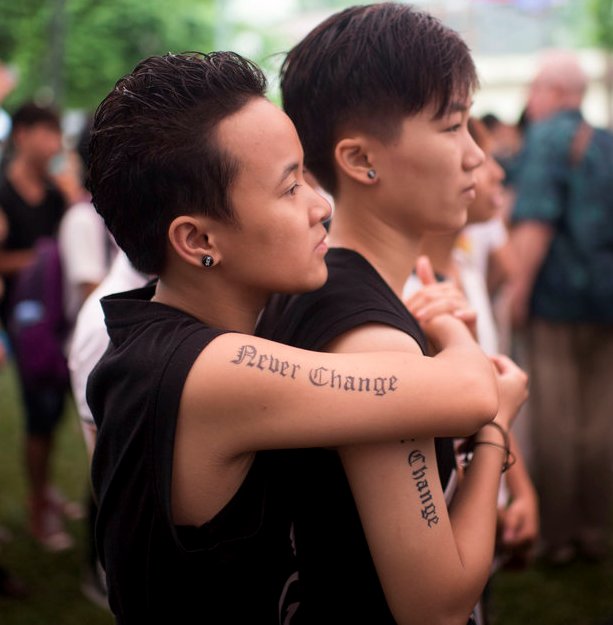
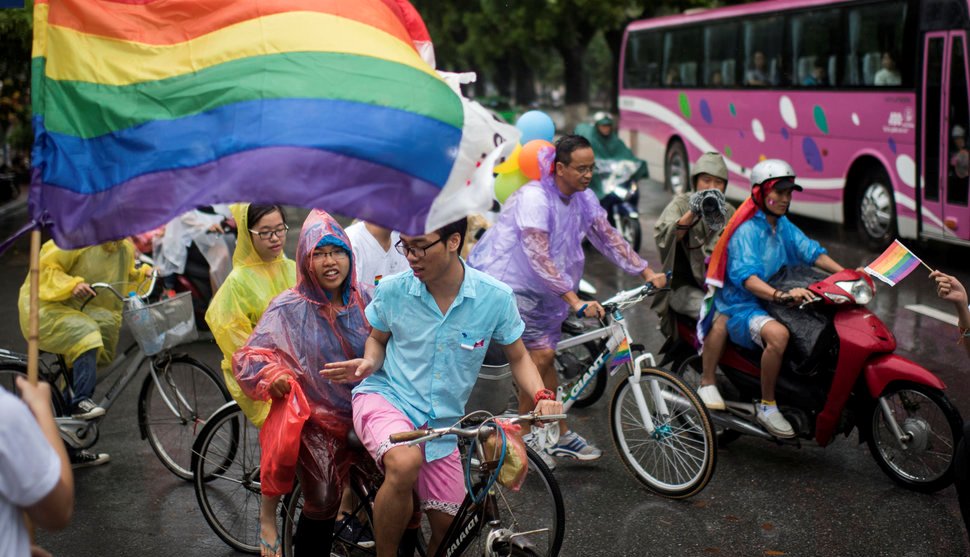
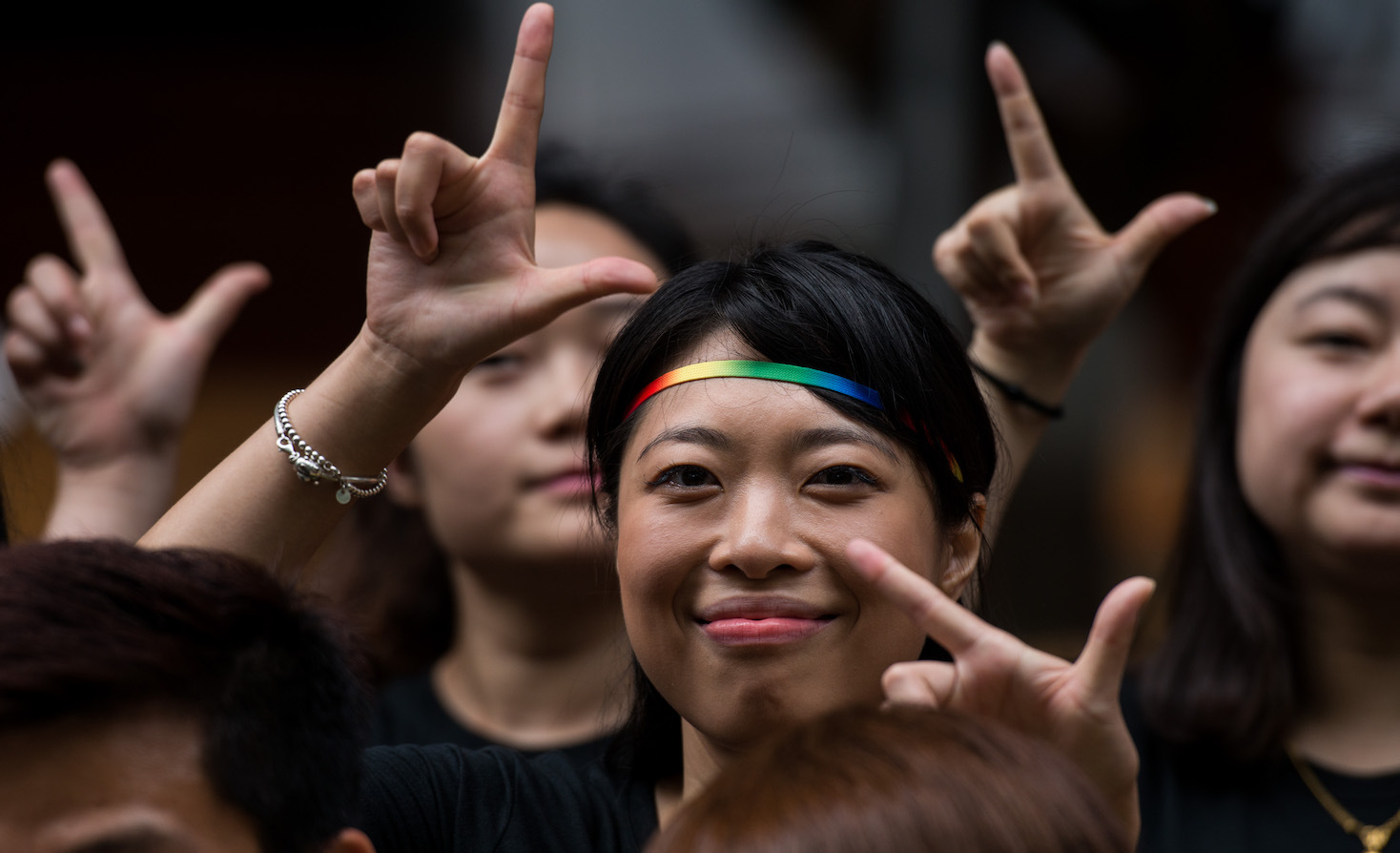
LGBTQ Rights in Japan
Gardens of the
Wind
China's Complicated LGBTQ Movement
Taiwan Becomes
First Asian Country to Legalize Same Sex Marriage
Is
It Okay to Come Out in Japan?
Being Gay in Deeply Conservative China
Is Vietnam LGBTQ Friendly or Not?
Japanese Govt Official Criticizes LGBTQ Community
LGBTQ Rights in China
Our Families: LGBTQ Asian
and Pacific Islander Stories
Are LGBTQ People Accepted in Japan?
Video Introduction to LGBTQ China
Voices of Queer Asian
Youth
LGBTQ Rights in Vietnam
Japanese Love Story: Make Me Complete
Majority of Singaporeans Support Ban on Gay Sex
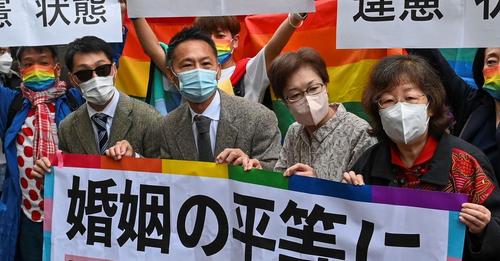
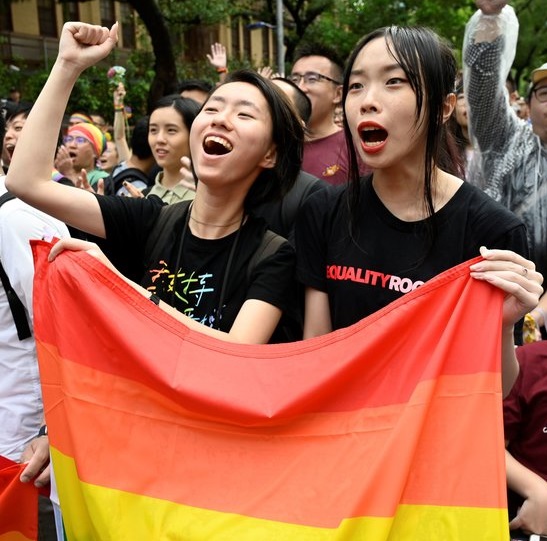
K-Pop Idols Who Have Shown Support for
the LGBTQ Community
Queer
Asian Project
Being Gay in Japan
Lesbian Love on Thailand Television
Thailand Same-Sex Marriage Ceremony
How Do Lesbians Date in
China?
The Problem with Being Gay in South Korea
Our Love Story: Yoonjoo and Jisoo
Vietnam's LGBTQ Movement in Full Bloom
Best Japanese
Lesbian Movies
How Gay Friendly is South Korea?
Is It Okay to Be Gay in China?
LGBTQ Rights in South Korea
Beautiful Vietnamese Lesbian Wedding
China's Thriving Drag Queen Culture
Out China: YouTube Channel
True Stories From Queer
Asia
Buddhism and
LGBTQ Issues
The
relationship between Buddhism and sexual orientation
varies by tradition and teacher. According to some
scholars, early Buddhism appears to have placed no
special stigma on homosexual relations, since the
subject was not mentioned.
One of the
differences between Buddhism and other religions is how
little emphasis it places on sexuality as a moral issue.
While other religions place rules about sexual behavior,
marriage, and sexual orientation at the center of their
ethical universe, Buddhism pretty much limits its
comment to the admonition not to harm others through
sexuality. (That’s for lay practitioners, of course.
Obviously, there are strict rules for celibate monastics.)
The result is that Buddhist attitudes toward LGBTQ
people are more a reflection of cultural attitudes than
Buddhist philosophy per se.
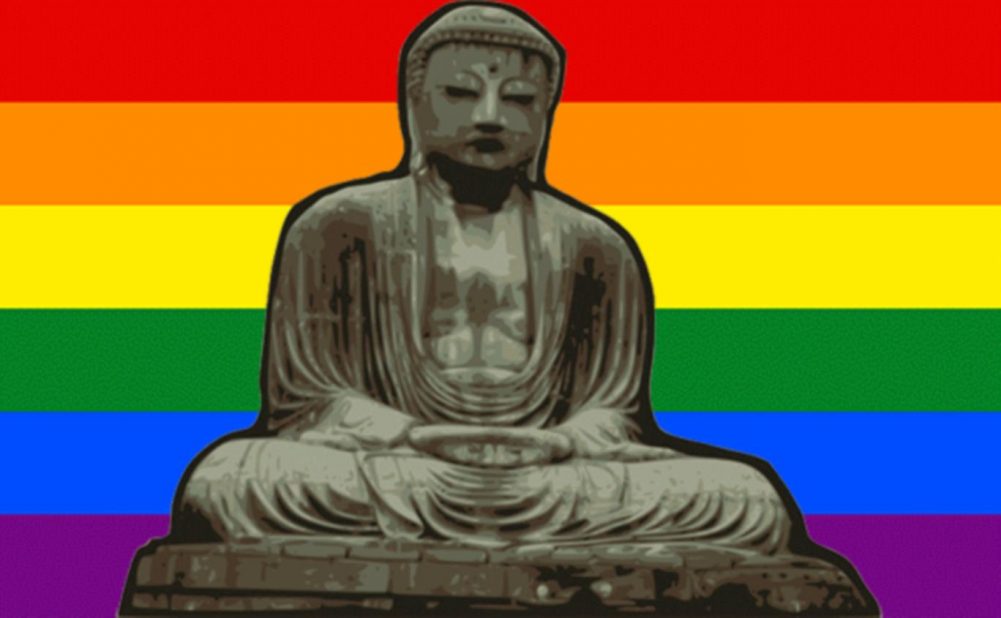
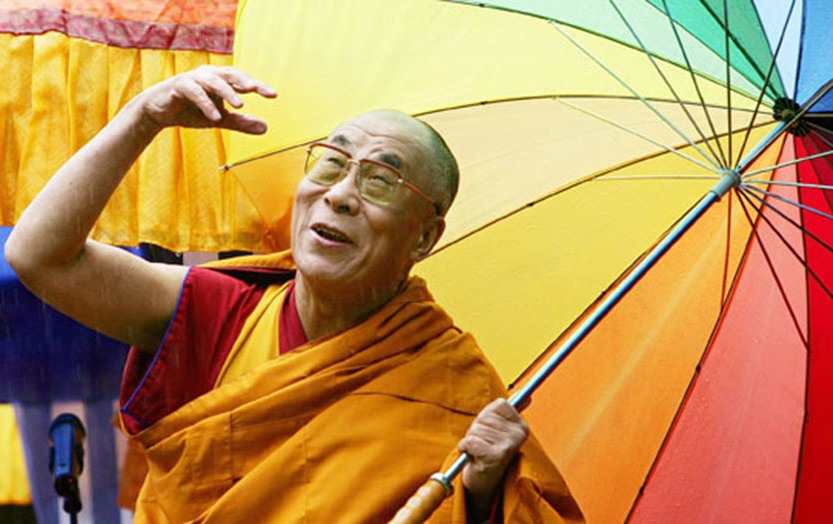
While traditional Buddhist societies are more
conservative, the Buddhist community in the West is
generally socially liberal and very welcoming to LGBTQ
members. There are prominent gay and lesbian teachers,
and most major communities host events, meditations, and
retreats specifically for LGBTQ practitioners.
Based on the teachings of Siddhartha Gautama, Buddhism
is considered a way of life for more than 500 million
individuals across the globe. The fourth largest
religion in the world, Buddhism is largely built on
concepts that foster individual enlightenment and
encourage personal responsibility. It is sometimes
described more as a philosophy or psychology than a
religion.
Sexual orientation, specifically, was not elaborated
upon by Siddhartha Gautama, nor is there any reference
or guidance for lay people regarding sexual orientation
or same-sex behavior within the Pali Canon, the
scriptural texts that hold the Buddha’s original
teachings. The Vinyana, a Buddhist text for monks,
forbids Buddhist monks and nuns from having sexual
relationships with men, women and those of other
genders, such as pandanka (interpreted as those with
indeterminate sexual characteristics or people who do
not conform to sexual norms, such as prostitutes). These
textual references do not target LGBTQ people
specifically, as everyone within the monastic order is
expected to refrain from all forms of sexual relations.
This practice is especially common within Theravada
Buddhism, which focuses heavily on the monastic
tradition.
HRC: Buddhism and LGBTQ Issues
LGBTQ Buddhists: Teachings, Profiles, Conversations
Buddhism and Sexual Orientation
Buddha Weekly: Views on LGBTQ
Gay Marriage: What Would Buddha Do?
Bhante Dhammika: Buddhism and LGBTQ Issues
Religious Facts: Buddhism on Homosexuality
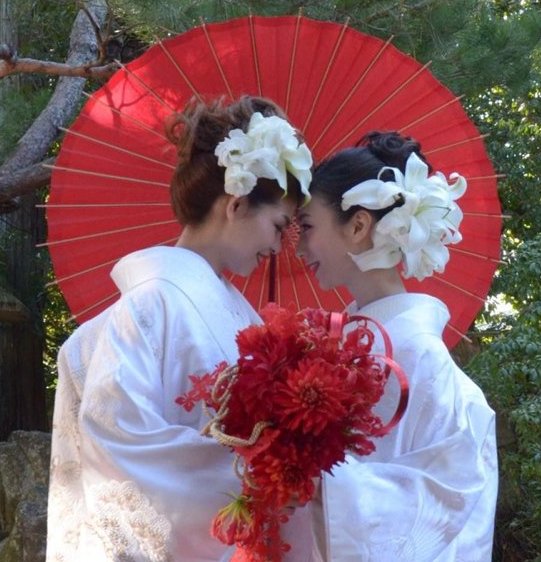
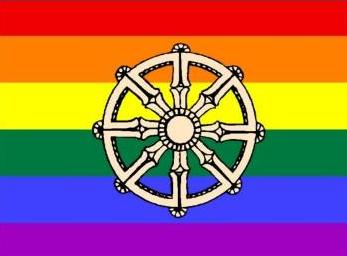
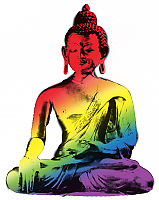
Zen Buddhism does not make a distinction between
same-sex and opposite-sex relationships. Instead, the
expectation is not to harm, exploit or manipulate
others, which would directly violate the third precept.
For instance, Zen Buddhists often refer to hedonism,
ascetic masochism and prostitutions as practices that
violate the “Middle Way.”
Regarding Tibetan Buddhism, the Dalai Lama’s
perspectives are complex and evolving. On the positive
side, he has publicly condemned violence against LGBTQ
people and has been reported to have said, “If the two
people have taken no vows [of chastity] and neither is
harmed why should it not be acceptable." Yet in a 1997
press conference he commented that “from a Buddhist
point of view [lesbian and gay sex] is generally
considered sexual misconduct.” Messages from the Dalai
Lama have been mixed and somewhat influx. During a
meeting with representatives of the LGBTQ community, the
Dalai Lama reportedly showed interest in how modern
scientific research might create new understanding of
the Buddhist texts, acknowledging a “willingness to
consider the possibility that some of the teachings may
be specific to a particular cultural and historic
context."
Overall, it is difficult to qualify Buddhism’s
perspective on same-sex marriage, since perspectives
vary greatly within the religion. Because of Buddhism’s
core theme to attain enlightenment, the path one chooses
to take within the religion is largely personal, as is
one’s beliefs. Hence, most Buddhist literature indicates
that opposition to or support for marriage rights for
same-sex couples is a personal, rather than religious,
statement.
Queer
Asian Project
Being Gay in Japan
Lesbian Love on Thailand Television
Thailand Same-Sex Marriage Ceremony
How Do Lesbians Date in
China?
The Problem with Being Gay in South Korea
Our Love Story: Yoonjoo and Jisoo
Vietnam's LGBTQ Movement in Full Bloom
Best Japanese
Lesbian Movies
How Gay Friendly is South Korea?
Is It Okay to Be Gay in China?
LGBTQ Rights in South Korea
Beautiful Vietnamese Lesbian Wedding
China's Thriving Drag Queen Culture
Out China: YouTube Channel
True Stories From Queer
Asia

HOME
QUEER CAFE
│ LGBTQ Information Network │ Established 2017
|